At The Bar
December 2023

Exploring expedited arbitration and inquisitorial procedures
Nigel Hampton KC on Doing Law Differently Obituary Leonard Andersen KC
… stop wasting valuable time on account errors … sick of getting no replies to your queries?
… no more late renewal notifications
… or unexplained pricing increases! LexisNexis is your Alternative!

Deal with real people who really care about you and your practice.
With LexisNexis ® you are supported by New Zealand-based relationship managers who are always available to help with any general enquiries. Senior Management is also based in NZ allowing alignment with direct strategic business plans and partnership opportunities enhancing your business.
Lawyers are people too – we get that. Let’s talk direct…
START YOUR JOURNEY NOW
To find out more about our NZBA Subscription offer, please contact Matthew Pedersen Head of Sales email: matthew.pedersen@lexisnexis.co.nz or call 021 860 207


beEXCEPTIONAL Proud supporter of the LexisNexis, Lexis Advance, Halsbury’s and the Knowledge Burst logo are registered trademarks of RELX Inc. © 2023 LexisNexis NZ Limited. All rights reserved.
SIGN UP NOW – DON’T PAY YOUR FIRST MONTHLY SUBSCRIPTION FEE UNTIL FEB 2024. ANNUAL SUBSCRIPTION SPECIAL NZBA SUBSCRIPTION OFFER* +gst
•Special NZBA subscription deal available until 20th December 2023.
$3200





YOUR ASSOCIATION
Pg 4 From the President – Maria Dew KC
Pg 6 Kōrero – Chambers news
Pg 10 Leonard Andrew Andersen KC – Obituary
Pg 16 New Members
Pg 11 Access to Justice Award 2023 – this year's winner
Pg 36 Events
LEGAL MATTERS
Pg 12 Exploring expediated arbitration and inquisitorial procedures – Peter Davey
Pg 15 How to stop and spot a SLAPP – Lucille Reece
Pg 17 Doing Law Differently – Annual Conference Keynote
Pg 22 Techniques for questioning vulnerable lay participants – a UK Perspective
PRACTICE AND LIFESTYLE
Pg 25
Pg 27
Pg 28
Pg 30
Pg 32
Pg 34
Spreading the word on wellness – An interview with Genevieve Haszard
Auckland High Court Sentencing Advocacy Competition – Sponsored by NZBA
The Growing Influence of Generative AI – What Lawyers Need to Know
The cost of keeping up with the Joneses –Patrick Fogarty
The Royal New Zealand Naval Reserves – a lawyer's experience
Petrol Heads' Corner – Cupra Born
This is our last issue of At the Bar for 2023. Thank you to everyone who contributed over the year, including article writers, our advertisers/sponsors, all those involved in the magazine's production, and most importantly, our readers. Our next issue will be March/April 2024. Our office will close on 20 December 2023 and reopen on 15 January 2024. The New Zealand Bar Association | Ngā Ahorangi Motuhake o te Ture wishes everyone a happy holiday season, however they choose to spend it.
Ngā mihi o te wā.
The views expressed in the articles in this publication may not necessarily be the views of the New Zealand Bar Association
EDITORIAL COMMITTEE CONTACTS
NEW ZEALAND BAR ASSOCIATION | NGĀ AHORANGI MOTUHAKE O TE TURE
Tel: +64 9 303 4515
Email: nzbar@nzbar.org.nz
Web: www.nzbar.org.nz
PO Box 631, Auckland 1140
Tel: +64 21 360 399 p36
Lisa Mills (Contributions and advertising)
Tel: +64 9 303 4515
Email: lisa.mills@nzbar.org.nz

DESIGN AND LAYOUT BY Kirsten McLeod
p34 p25 p28 p32
From the President
Maria Dew KC*

The Ministerial roles that impact the profession
When I started writing this column in late November, we were waiting on the announcement on the formation of our new Government, including importantly for the legal profession, our new Attorney General | Rōia Matua and the new Minister of Justice.
We now know that the Hon. Judith Collins is our new Attorney General, and the Hon. Paul Goldsmith is the Minister of Justice. Congratulations to them both. The Bar Association looks forward to working with them over the coming years.
While awaiting these new appointments, I was prompted to consider the roles of Attorney General and the Minister of Justice. The two roles are not generally held by the same Minister simultaneously and this protocol has continued.
To give you a flavour of the last 12 years, we have had seven Ministers of Justice, including:
• Judith Collins 2011 to 2014;
• Chris Finlayson, for a few months at end of 2014;
• Amy Adams 2014 to 2017;
• Andrew Little 2017 to 2020;
• Kris Faafoi Nov 2020 to June 2022;
• Kiri Allan, June 2022 to July 2023;
• Ginny Anderson, July 2023 to current.
By contrast, over the same period, we have had only two Attorney General’s hold the role:
• Chris Finlayson 2008 to 2017; and
• David Parker, 2017 to present.
The Attorney General’s office first started in 1856 with the appointment of Fredrick Whitaker. Since that time, we have only had 32 Attorneys, including many prominent lawyer politicians such as David Lange, Geoffrey Palmer and Doug Graham. Until 2023, only one female had held the role being the former Attorney-General Margaret Wilson, who was the Attorney for five years during the early 2000’s. Judith Collins is therefore only our second female Attorney.
The role of Attorney General is unique in Cabinet. It holds simultaneously a ministerial position as a member of Cabinet, but must at the same time, act in an apolitical function as the chief legal officer of the Crown. The ministerial jurisdiction for the
Attorney General covers the Crown Law Office, the Parliamentary Counsel and the Serious Fraud Office.
As the chief legal officer of the Crown, the Attorney is required to act with independence from the usual business of being a politician, including as the check on the government. The role must ensure the government upholds the rule of law and acts in compliance with the Bill of Rights, while advising the Government on other domestic and international obligations. There are four key functions of the office, which highlight the breath of the legal role.
Legal Counsel to the Government:
Guardian of the Public Interest:
Prosecutorial Functions:
The Attorney General offers legal advice to the government on constitutional, legislative, and policy matters. This includes advising on the development and implementation of laws and policies.
Acting as a guardian of the public interest, the Attorney General ensures that the government's actions are consistent with legal principles and uphold the rule of law.
The Attorney General has a significant role in the prosecution process. While the day-to-day prosecution duties are typically carried out by the Crown Solicitor or the Crown Prosecutor, the Attorney-General oversees matters of significant public or constitutional importance.
Representation in Legal Proceedings:
Representation in Legal Proceedings: The Attorney General often represents the government in legal proceedings and plays a key role in litigation involving the Crown
Chris Finlayson KC, when speaking last month at the Bar Association webinar “Perceptions of the Bar from above”, described his approach to the Attorney General’s role as being “a lawyer in politics, rather than a politician who is a lawyer ”.
We look forward to working with the new Attorney General and the Minister of Justice both in supporting the important roles they have and in furthering our general functions. Our Rules set for the Bar Association 36 years ago remain as relevant today as they did then, namely to:
• promote the interests of the public in legal representation and the judicial system;
• preserve and maintain the independence and integrity of barristers;
4 DECEMBER 2023
• preserve and maintain the independence and integrity of the judiciary;
• promote improved access to the Courts and to justice for everyone;
• assist in and promote the reform of the law and legal procedure.
The importance of independent advisers
Another matter that has occupied my reading time this month has been a submission helpfully provided to me by the Victorian Bar Association. The submission attracted some media in Australia last month when it was presented to a Parliamentary Inquiry into Ethics and Professional Accountability. The submission seeks to highlight the value of the independent bar in avoiding conflicts between government and private clients. The Inquiry itself is a cautionary tale for governments both in Australia and New Zealand about the conflict challenges for multi-disciplinary professional firms. A full copy of the Victorian Bar submission is available on our website 1
The Inquiry arises out of a case concerning PricewaterhouseCooper’s (PwC) Australian multidisciplinary firm of professional advisers.2 As many will know, these firms include accountants, consultants and lawyers. The Federal Court of Australia in its decision released last year, exposed difficulties in the way claims of legal professional privilege are dealt with in the context of multi-disciplinary firms. This gave rise to concerns that the firm’s client arrangements created the risk for the transfer of the confidential information of one client, the Commonwealth, in PwC’s commercial activities with other private clients. These matters were investigated, and adverse findings were established in the Senate Finance and Public Administration Committee Report in June 2023 “PwC: A calculated breach of trust ”, presented to the Inquiry.3
The Victorian Bar submission to the Inquiry focuses on three matters:
• The difference in the professions that arise not only out of different regulatory environments, but different ethical norms;
• The use of claims of legal advice privilege by multi-disciplinary partnerships which are business entities that provide legal services and other professional advisory services; and
• The government procurement protocols which had been, in the words of the submission, ”skewed towards the provision of services primarily by muti-disciplinary and consulting firms (not only for the provision of legal services but professional services generally)”, when in some cases the better provider of those services may have been independent individuals such as barristers, who may be more cost effective and accountable and may mitigate the costs of services provided to the public
sector, increase accountability and protect against conflicts of interest.
Interestingly, this matches with some of what we heard from our former Solicitor General, Mike Heron KC, reflecting on his time in the Solicitor General role. His comments at our recent Bar Association event “Perceptions of the Bar from above”, included his observation that in his time in the Solicitor’s role, he placed some reliance on the independent bar to provide frank, robust and importantly, independent advice. He acknowledged that the importance of the independent bar, had not been as obvious to him in private practice.
While there is always a danger in seeing the value of “our own importance”, there is certainly no reason for false modesty. There remains an important role for independent bar.
Getting together at the end of 2023
Our Bar Association Council met in Auckland on Friday 24 November, to discuss the projects, advocacy, and education we are working on for the bar. This meeting was followed by an enjoyable end of year function in central Auckland at the Pavilion, Shortland Street, where we had the opportunity to socialise with both members and the judiciary.
I also joined members at our Wellington event at Shed 5. Once again, I was delighted by the collegiality at the bar, and I thank everyone including the members of judiciary, and the Chief Justice Dame Helen Winkelmann, who all made time to attend.
Richard Raymond KC hosted our Christchurch end of year gathering at the Christchurch Club. This was a special occasion as the bar was able to pay a special tribute to Mark Zarifeh, the retiring Crown Solicitor. Mark is a member of the Bar Association, and we wish him well in the future.
By the time you read this, we will have hosted end of year functions for our members in South Auckland, Tauranga, Hamilton, and Dunedin. I am only sorry I wasn't able to attend them all. However, other Council Members were there to thank you all for supporting the Bar Association this year.
Ngā mihi o te Kirihimete me te tau hou | Merry Christmas
I wish you all a happy holiday season and look forward to seeing you all in 2024. Mark your diaries for our combined Australian Bar Association and NZBA TransTasman Conference on 14-15 August in Queenstown.
Kia pai ngā hararei me kia noho haumaru | Go well and stay safe.
Maria Dew KC
DECEMBER 2023 5 REFERENCES 1 Victorian Bar Inc Parliamentary Joint Committee on Corporations and Financial Services Inquiry into Ethics and Professional Accountability, Structural Challenges in the Audit, Assurance and Consultancy Industry (https://www.nzbar.org.nz/news/president-24-november-2023, accessed 11/12/23) 2 Commissioner of Taxation v PricewaterhouseCoopers [2022] FCA 278. 3 Report, June 2023, https://www.aph.gov.au/Parliamentary_Business/Committees/Senate/Finance_and_Public_Administration/Consultingservices/
Kōrero: Chambers News

Peter has been engaged to advise in a number of the leading cases in the area in the United Kingdom and other jurisdictions, and in international arbitrations. Read more about Peter’s remarkable achievement.

Rachael Schmidt-McCleave has been appointed a Coroner, sitting in Palmerston North. Coroner SchmidtMcCleave is an experienced litigator who has worked in public and private practice in New Zealand and the United Kingdom since admission in 1996. She joined the Independent Bar in 2014. She has extensive expertise in public law and judicial review in particular, as a result of almost a decade at the Crown Law Office. For the past three years she has been lead counsel for the Crown in both the Royal Commission of Abuse in Care Inquiry and in the Waitangi Tribunal Oranga Tamariki Urgent Uplift Inquiry.
This is what her fellow chambers colleagues have to say about Coroner McCleave:
Rachael was one of the first women to join us Sheppard Chambers in 2021. We sought her out because she is a wonderful colleague, and we knew she’d make a fantastic member of KSC (we were right!). Now, years later, we are so proud to see her become Sheppard Chambers’ first judicial appointment. compassionate, hardworking, and has an exceptional legal mind. These are perfect attributes for a Coroner. We wish her all the best as she swaps her black robes for navy blue.

Bankside Chambers
In October Bankside warmly welcomed new member Michael Morrison to chambers. Having been a partner for over 17 years leading commercial and civil litigation teams, more recently with Morrison Mallet (now Morrison Partners Limited), Michael is well recognised by his peers as a highly experienced and successful commercial litigator. His depth of experience and knowledge spans across contractual disputes, civil fraud, corporate law, joint venture/fiduciary duties, finance and securities, insolvency, professional negligence, trust and property disputes, with substantial expertise in the primary sector. As well as his outstanding advocacy skills, Michael has broad commercial experience and excellent judgment, uniquely combined with his ability to win the trust of his clients and manage the human relationship dynamics of difficult conflicts.

Bankside is delighted to have welcomed seasoned commercial litigator Polly Pope to chambers in early December. Polly is a highly regarded commercial litigator who joins Bankside after over a decade as partner at preeminent law firm Russell McVeagh, including a term as Chair of the Partnership. Her expertise spans commercial, insolvency, construction, and financial regulatory enforcement disputes and investigations. Polly has long been a trusted advisor to many of New Zealand’s largest companies. Polly became a Fellow of the Arbitrators’ and Mediators’ Institute of New Zealand and the Chartered Institute of Arbitrators in 2018 and has subsequently been appointed to the Arbitration Panels of the New Zealand Dispute Resolution Centre and of AMINZ. As a Bankside Singapore member, Polly will be assisting New Zealand companies to pursue international arbitration to resolve disputes.
Bankside member Peter Watts KC became the first New Zealander, reportedly, to have earned the prestigious Doctor of Civil Law (DCL) from the University of Oxford by examination, rather than received as honorary. Peter has been granted leave to supplicate for the DCL with a ceremony to follow. Peter has been teaching law at Oxford for several weeks a year as a Visiting Professor since 2017. As a world authority on the law of agency,

Bankside is also pleased to welcome Oliver Harding, a barrister employed by Jeremy Johnson. Oliver graduated from the University of Otago with a Bachelor of Laws and Arts and was admitted to the bar in July 2022. Before joining Bankside Chambers, Oliver was a solicitor at Grimshaw & Co, where he worked on building defect claims and property and construction disputes.
6 DECEMBER 2023
Appointment of Coroner McCleave

Bankside is thrilled to be sponsoring and participating in this year’s Hong Kong Arbitration Week. Bankside Singapore Member Lauren Lindsay says that the interplay between insolvency issues and arbitration has long been a challenge for many practitioners but with the recent high-profile judicial attention, it is important to explore it in more depth.” – Bankside Singapore member, Lauren Lindsay.
Bankside is proud to be the first New Zealand barristers’ chambers to host a session during Hong Kong Arbitration Week with Bankside Singapore members Hon Paul Heath KC, Dr Anna Kirk, Lauren Lindsay and Singapore-based Rina See, presenting on insolvency and arbitration: how to navigate disputes with an insolvent party, at the Hong Kong International Arbitration Centre (HKIAC). Read more here

Congratulations go to Kate Wiseman, Kelly Quinn and Mark Kelly for their awards at the annual AMINZ conference. Kate Wiseman and Kelly Quinn received the Arbitration Fellowship, the Institute’s highest credentialled status. With a rigorous assessment process of both academic knowledge and practical skills, the AMINZ Fellowship is the only arbitration credential worldwide that grants automatic reciprocal Fellowship rights with the Chartered Institute of Arbitrators (CIArb) in the United Kingdom. Kelly Quinn was also awarded the Sir Ronald Davison prize for excellence in fellowship arbitration. Former AMINZ president Mark Kelly won Te Tohu Ngākau Nui: The Big Heart Award, for his
commitment to recognising selfless service and valuable contributions as a mentor.
On Thursday 26 October Justice Laura O'Gorman was sworn in as Judge of the High Court by Chief Justice Helen Winkelmann. Speakers included Solicitor-General Una Jagose, on behalf of the Government of Aotearoa New Zealand and Frazer Barton, President of the New Zealand Law Society, on behalf of the legal profession. Many Bankside members attended to honour Laura’s appointment to the bench and her valuable contribution to chambers. We will miss Laura and wish her all the best.

Photography credit: Sean McCabe
Britomart Chambers
James Christmas joins Britomart Chambers

Britomart Chambers is delighted to welcome James Christmas to chambers. James has a broad client base around New Zealand. He specialises in public law, with broad experience in the Treaty of Waitangi, the Crown-Māori relationship, national security and governance.
A lawyer since 2012, he was a senior adviser to former Attorney-General Christopher Finlayson KC, and Prime Ministers Sir John Key and Sir Bill English, and has practised on his own account since 2019.
In 2021, he co-authored with Christopher Finlayson KC He Kupu Taurangi, a history of Treaty Settlements under the National Government. He is currently writing the biography of former National Party Minister of Justice, Ralph Hanan.
James has a long-standing interest in New Zealand foreign policy and the arts and served as a trustee of the New Zealand String Quartet from 2017 to 2023.
DECEMBER 2023 7
FortyEight Shortland Barristers announces a new member

FortyEight Shortland Barristers is delighted to announce that Patrick Senior has joined as a member of chambers.
Patrick is an experienced environment and resource management specialist. He has a range of experience appearing before local authorities, the Environment Court, the High Court, and providing advice on strategic and policy matters. Patrick has a special interest in coastal projects, urban development, climate change and farming and freshwater.
He joins chambers from Russell McVeagh, where he was a Senior Associate in the Environment, Planning and Natural Resources team. Patrick holds an LLB (Hons), BSC (Hons) from the University of Auckland and has practiced at leading firms in New Zealand and in the United Kingdom. Patrick moved to the Bar in August 2023.
Kate Sheppard Chambers 2023 wrap up
It has been another eventful year at Kate Sheppard Chambers. With the arrival of Fiona Cleary, Samantha Allen, and Bronagh McKenna, KSC become Aotearoa’s third largest chambers. 2023 also saw KSC’s first judicial appointment: in October a number of KSC barristers were present to witness Rachael SchmidtMcCleave being sworn in as a coroner.
In May, KSC celebrated two years since their public launch with a party at the National Library Te Puna Mātauranga o Aotearoa. KSC talent was on display, with guests entertained by a superb cello solo from Dr Alison Gordon and a moving rendition of Whakaaria Mai from Genevieve Haszard. The white camellia in the KSC logo is symbolic of the white camellias worn by supporters of women’s right to vote. On the night, each KSC barrister wore a white silk camellia lapel pin. KSC scholarship recipients, Cait Hollywood and Anna Dombroski, and guest speaker The Hon. Sir Stephen Kós, were also presented with silk camellias in recognition of their special place in the wider KSC whānau.
KSC barristers have shared their knowledge and experience with the profession throughout the year. Bronagh McKenna chaired the 2023 Public and Administrative Law Conference; Jamie O’Sullivan presented at the Environmental Compliance Conference on the use of the new Natural and Built Environment Act 2023 in compliance and enforcement; Lizzy Wiessing presented at two conferences on the rating of Whenua Māori; Nikki Pender was a panellist for the NZBA seminar on advocacy in the coronial jurisdiction; and Jamie O’Sullivan and Pauline Courtney were members of the NZLS litigation skills faculty. There was a strong KSC presence at the NZBA conference in Ōtautahi and Genevieve Haszard chaired a session with a panel of junior barristers.
Members of KSC have also received recognition within the profession. Dr Petra Butler was made a Fellow of the Arbitrators' and Mediators' Institute of New Zealand. Dr Butler has also recently been appointed Dean of Law at the University of Canterbury. Isabella Clarke was named on New Zealand Lawyer’s Elite Women List for 2023.
Dhilum Nightingale continues to work towards innovative solutions for vulnerable migrants. Dhilum has established a charitable trust called VERI-Mi that is building a digital solution to migrant exploitation. She is also undertaking her second Borrin funded research project: a partnership with Shama Ethnic Women's Trust looking into the experiences of ethnic and migrant women who report family violence and go through a Family Court process. The research is capturing victim/ survivors' experiences, looking at the particular barriers and challenges they face in the Family Court, and seeing how the system can be more culturally responsive.
Helping other women to progress in their legal careers and addressing gender imbalances is important work for KSC. On 19 September, 130 years to the day since women in Aotearoa won the right to vote, KSC proudly announced Sophie Brokenshire as the 2023 recipient of the Kate Sheppard Chambers Scholarship for Research into Women and the Law. Sophie’s research will shine a light on women-led civil disobedience in the Middle East.
Meanwhile, the members of KSC have been busy providing expert advice on a broad range of subject matters and representing their clients in every forum. By way of some highlights: Sarah Shaw has been appointed to Auckland Council’s Independent Hearings Panel on urban intensification; Clare Lenihan chaired the expert consenting panel appointed to consider and decide the Hananui Aquaculture resource consent application; Dhilum Nightingale has been appointed a Freshwater Commissioner by the Minister for the Environment; Dr Rhonda Powell appeared in the Supreme Court in an appeal involving relationship property; Nikki Pender is counsel for some of the families in the inquest into the Christchurch Masjidian attacks; and Elana Geddis appeared in the International Court of Justice, acting for New Zealand in its intervention in the claim brought by Ukraine against Russia under the Genocide Convention.
The Hon. Justice Kós noted earlier this year that the members of KSC are “gifted and talented barristers” and that KSC will make “a tangible and very positive difference” to women at the bar. The members of Kate Sheppard Chambers look forward to seeing what milestones 2024 will bring.

Barrister Matewai Tukapua joins Kōkiri Chambers
Matewai (Muaūpoko, Te Ātihaunuia-Pāpārangi me Taranaki Tūturu) joined the Kōkiri Chambers whānau in July 2023. She is a Wellington based barrister specialising in Public Law, Te Tiriti o Waitangi
8 DECEMBER 2023
and Māori legal issues. Matewai was formerly Crown Counsel in the Treaty Team at the Crown Law Office and a Senior Associate at Kāhui Legal. Her experience includes providing advice and representing clients on issues concerning Te Tiriti o Waitangi, along with a deep involvement in issues in the Waitangi Tribunal.
Matewai joins Bernadette Roka Arapere and Rohario Murray in the kaupapa Māori, virtual barrister’s chambers, which was established in February 2022. Kōkiri Chambers’ barristers have expertise in Public and Administrative Law, litigation and dispute resolution, Te Tiriti o Waitangi, Māori Legal Matters and Environmental Law. All barristers are speakers of Te Reo Māori and have authentic knowledge of tikanga Māori.
The virtual nature of Kōkiri Chambers allows their barristers to stay connected and available to assist their clients with their legal matters wherever they may be located.
Ai ua, ai hau, ai marangai. Kōkiri! Withstand the rain, the wind, the storms. Go forth!
Sangro Chambers
Former High Court Judge Paul Davison KC (admitted February 1975) has joined Sangro Chambers where he offers mediation and litigation consultancy services. He was appointed a HC judge in 2015 and retired from the bench in August 2023.
Shortland Chambers
In late 2023, Shortland Chambers members were pleased to welcome three new members, James Ruddell, Yoonjung (Yoony) Lee and Matthew Harris.

James is a commercial and civil barrister with wide international experience. From 2016, James practised from One Essex Court, a top-tier barristers’ chambers in London, where he specialised in corporate and commercial disputes, banking and finance, and civil fraud. Prior to that, James was a member of Bell Gully’s litigation team in Auckland and Wellington. James holds a master’s degree in law from the University of Oxford, where he graduated with distinction.

Yoony is a commercial litigator with extensive experience in large-scale and complex disputes. She has acted for clients in mediations, court proceedings and arbitrations across a wide range of sectors and specialises in corporate and commercial disputes. Prior to joining the independent bar, Yoony worked at MinterEllisonRuddWatts and subsequently Gilbert Walker. Yoony holds LLB (Hons), BCom (Hons) and LLM degrees from the University of Auckland.

Matthew is an experienced trial and appellate advocate who practises in most areas of commercial law, including company and commercial, class actions, insurance and professional liability, construction, and property. He joins chambers after 16 years at Gilbert Walker; he previously practised at Clifford Chance and Davis Polk London and at Covington & Burling in Washington, DC. Matthew holds a BA and LLB(Hons) from the University of Auckland and an LLM from NYU.
In July, the members farewelled Yvonne Mortimer-Wang who moved to Britomart Chambers.
Walker Street celebrates its five-year anniversary
Walker Street Chambers in Christchurch recently celebrated its five-year anniversary with a cocktail party at the Christchurch Art Gallery, joined by members of the Bar and profession, current and retired members of the judiciary, NZLS President Frazer Barton, court staff, stakeholders and friends. Established in 2018 by Kerryn Beaton KC and Anselm Williams, Walker Street Chambers has grown rapidly and now has 20 barristers in chambers, including eight employed junior barristers.
Its members provide expert advice and representation to clients in criminal, regulatory, parole, civil, family, employment, privacy, coronial and resource management proceedings at all levels of courts and tribunals throughout the motu. Walker Street Chambers is committed to access to justice with most members providing legal aid services, and is a leader in the employment, training and mentoring of junior members of the bar. Walker Street Chambers’ services are complimented by its three Associate Members: The Forensic Group, Zavést and Panckhurst Consulting, which are pre-eminent forensic, investigative and psychiatric experts supporting all aspects of legal work for chambers members and the independent bar.


DECEMBER 2023 9
Leonard Andrew Andersen KC (08 April 1952 -

16 September 2023)
Len Andersen KC passed away on 16 September after a short illness. He was one of the leaders of the Otago Bar but is known throughout the country for his work for the profession as a whole, including serving on the NZBA Council, becoming President of the CBA, and being active within the Law Society. Len was also President of the former Otago District Law Society and a faculty member of the Litigation Skills programme. He was also the current Convenor of the NZLS Practice Approval Committee.
Len grew up in Napier and had six siblings. He knew from an early age that he wanted to be a lawyer, despite the doubts of an early career adviser. When it came time to go to University, Len decided to attend Otago University, as his mother had done before him. After graduating in 1975, he spent a year as a teaching fellow in the Law School but was impatient to practise law rather than become an academic. However, he would later return to a teaching role at Otago, where he lectured in advocacy for many years.
Len then moved North to take a position at Osborne Handley Gray and Richardson. His practice was general in nature, and he later described it as approximately 1/3 family, 1/3 criminal and 1/3 other litigation, including civil. Although he was possibly better known for his criminal work, Len retained the generalist approach, liking the variety of the work.
Fifteen years later, Len returned to Dunedin to join Dr Royden Somerville KC who was establishing a new set of chambers. He was to later comment in an interview that although barristers do not have the benefit of others contributing to the common income (including paid sabbaticals), they gain from being solely responsible for their practice and not having to worry about staff or other issues associated with partnerships. However, Len was not a person to operate in a silo and was well-known for his care for and worry about his chamber mates and the junior barristers he mentored along the way.
Len was called to the inner bar in 2019 at the High Court in Dunedin. The Otago Daily Times reported that there was not a spare seat in the courtroom and published a photo of Len with his proud daughter, Cate Andersen – also a barrister. The paper noted that he was forced to remain silent during the ceremony, which led to the Chief Justice commenting that because he had no right of reply, as he was used to in the criminal jurisdiction, he should "stand and relax".
Remembered fondly by his friends and colleagues, Len was often the first to put his hand up and offer to help when needed. He was committed to his clients. The Chief Justice noted in his call ceremony that silks have to be committed to the development of the law, show a fierce independence and a desire to take on complex work without financial reward. She said, "The role is reserved for the strong, the upright, the learned and the brave." Len, she noted, embodied those qualities.
Len practised law for some 47 years. Although he was at a time in his life when many would consider retirement, he continued to serve his clients and give back to the legal community right to the end. Len was well known as a resourceful practitioner, skilled in many practice areas with an unconventional but adept and skilful advocacy style. Or, as the Chief Justice described it, while his advocacy style could not be described as polished, Len was adept in finding the true merit in any case he was arguing.
Dr Royden Somerville KC described Len as a stalwart of the southern bar, saying that he was well-known for his industry, the wide range of matters he appeared in, his indefatigable approach when advancing a client's case, and his passion for advocacy. “He was a highly valued member of the legal profession, and a generous mentor of many young practitioners. He will be greatly missed by his colleagues and friends," said Dr Somerville.
This has been echoed many times, as practitioners learned of Len’s passing. Len had been due to attend the Bar Association’s Annual Conference on the weekend he passed. President Maria Dew KC was in the position of having to deliver the sad news at our formal dinner, where the Law Society President, Frazer Barton, spoke of Len as a kind and generous person. Many spoke of their loss. Maria Dew commented that:
“What was striking was the consistency of the comments from those who knew Len either a little, or very well. He was described as generous, the first one to step up if you needed help and intuitive in understanding when encouragement or support was needed by others. In his time on our Bar Council (1994 to 1998), he was admired as a voice of calm reason. Undoubtedly, his passing is a huge loss to the profession. He will be deeply missed.”
Len has been described by colleagues as the “Patron Saint of Lost Causes”. He would step in and help out on cases where others had long given up hope. He always turned up to events and championed collegiality amongst practitioners, hosting a series of lunches for lawyers for many years. He was both a mentor and a friend, as a barrister recently commented:
10 DECEMBER 2023
“Len taught me advocacy skills in 1995. Len was a formidable teacher, demanding high standards of all of us and opening our eyes to the skills required in court. We were in awe of him. Len has kept in touch over the past 30 years. He was tremendous at picking up the phone. Whenever something happened, whether it was a disappointing judgment or a career highlight, he always phoned. He was always fun to be around – a genuinely fantastic person. When one of us recently lost a parent,
he was at the funeral. He was in touch with us during and after a difficult trial. He was the ultimate mentor and friend, and we will miss him terribly.”
The President and Council of the New Zealand Bar Association | Ngā Ahorangi Motuhake o te Ture extend their sincere condolences to Len’s whānau, friends, colleagues, and students.
Access to Justice Award
The 2023 LexisNexis / New Zealand Bar Association | Ngā Ahorangi Motuhake o te ture Access to Justice Award was awarded to Dr Bridgette Toy-Cronin at the Bar Association’s formal Conference Dinner in Christchurch.
This Award was born out of discussions with community stakeholders and those whose practices included significant legal aid, pro bono, low bono and alternative fee-charging components. Many felt they were not recognised for the vital work that they undertook. We wanted to thank them and clarify that the independent bar appreciated their contributions. LexisNexis representative Matt Pedersen noted his company’s commitment to the rule of law and the vital part that access to justice plays. In the UK, the company already sponsored an Access to Justice Award.
Dr Simon Foote KC outlined Dr Toy-Cronin’s work in Access to Justice. Over the years, her work has informed the judiciary, the legal profession, and the government of the crisis we face in accessing our courts and dispute resolution mechanisms. Most importantly, her empirical mahi has proved decisive in raising the consciousness of the government and the profession to the seriousness
of the situation. Dr Toy-Cronin is a leader in this area domestically and has highlighted the issue internationally. As a result of her work, there has been a move towards evidence-based reform and drawing disparate threads and organisations into a cohesive approach to the problem. This year is the second year of the Award but the first year we have called for nominations. The judges were highly impressed by the nominees and their work in a crucial area of the legal system. The standard was so high that the judging Panel decided that there would be a special commendation for Wellington barrister John Goddard in addition to the winner. The judges noted the breadth of his work and his commitment to representing those who otherwise would not have a voice before our courts. The range of areas in which he represents clients – from ACC to tenancy – shows the extent of his endeavours in providing access to justice. In the Panel’s view, Mr Goddard’s nomination presents the human face of access to justice.
The Bar Association is honoured to be able to present this Award. Those working to ensure access to justice are demonstrating their commitment to the rule of law, and we thank them for their mahi.

DECEMBER 2023 11
Matt Pedersen (LexisNexis), Bridgette Toy-Cronin, John Goddard and Simon Foote KC
Exploring expedited arbitration and inquisitorial procedures
Peter Davey*

Introduction Clause 3(1)(a) of the Second Schedule of the Arbitration Act 1996 (the Act) gives an arbitrator the default power to adopt “inquisitorial processes”. However, there seems to be little guidance as to what an inquisitorial process involves. This begs the question as to how an inquisitorial process can be used to expedite an arbitration under the Act and provide better access to justice?
The Law Commission’s report, which formed the genesis of the Arbitration Act, provides little assistance.1 The Commission in its earlier discussion paper noted that: “The Australian Acts move away from the idea that the arbitral procedure should be modelled on that of a court case” and that apart from natural justice “the common law’s constraints of an adversarial procedure modelled on the courts would not seem to apply”.2
Unless the parties agree otherwise, it appears that the Act deliberately intends to depart from the adversarial approach and permit the arbitral tribunal to “seek out matters of evidence or law that it considers are conducive to a just outcome”, subject to the rules of natural justice.3
Inquisitorial processes are traditionally found in civil law jurisdictions, such as those in continental Europe. However, there seems to be no common “Civil Law procedure” and the processes adopted vary from one country to another.4 Further, the distinction between inquisitorial and adversarial systems appears to be blurred in international arbitrations.5
In 2018 the Inquisitorial Rules on the Taking of Evidence in International Arbitration were launched in Prague (the Prague Rules) as an alternative to give a more civil law flavour to arbitration procedure than the IBA Rules on the Taking of Evidence in International Arbitration. The Prague Rules provide some useful guidance on the possible inquisitorial processes that could be used under the Act.
In 2021 the UNCITRAL Expedited Arbitration Rules6 were adopted and other international arbitration institutions have expedited arbitration rules.7 Rule 11 of the AMINZ Arbitration Rules also sets out an expedited arbitration process that can be adopted by parties (the AMINZ Expedited Arbitration Rules)
The expedited procedures favour the appointment of a sole arbitrator although the Prague Rules simply refer to the arbitral tribunal. As we will see, many of the expedited arbitration procedures already adopt inquisitorial processes.
Early case management conference
An early case management conference is a key component of both expedited arbitration rules and an inquisitorial process. Under the Prague Rules the arbitral tribunal is required to hold a case management conference “without any unjustified delay after receiving the case file.”8 The Prague Rules also encourage the arbitral tribunal to take a proactive role at the case management conference by clarifying the relief sought, the disputed and undisputed facts and the legal grounds on which the parties base their position.9
Similarly, the AMINZ Expedited Arbitration Rules require the arbitrator to “consult with the parties, through a case management conference or otherwise, on the manner in which it will conduct the arbitration” within 14 days of appointment.10
This may give an arbitrator an early opportunity to assist the parties to mould the arbitration to best suit the particular dispute, such as requiring the parties to submit all relevant documents, witness statements and expert reports with the points of claim and defence.
Discovery
It is well-recognised that discovery can be a timeconsuming and costly exercise, which often fails to reveal any “smoking gun”. The Prague Rules state that extensive production of documents, including any form of e-discovery, is to be avoided but a party may request the arbitral tribunal to order another party to produce specific and identified relevant documents.11 The arbitral tribunal may on its own initiative also request a party to produce a document which it considers to be relevant and material to the outcome of the case.12
Similarly, the AMINZ Expedited Arbitration Rules state that there shall be no request for disclosure of documents. The parties are to produce all documents and evidence which they rely on but the arbitrator may direct what other documents and evidence the parties should produce.13
Investigating the facts
Prior to the introduction of the Act, the High Court had stated that arbitrators must confine themselves
12 DECEMBER 2023
to material put before them by the parties unless the contrary is agreed.14
Under the Prague Rules the arbitral tribunal is encouraged to take an active role in investigating the facts of the case.15 For example, the arbitral tribunal may indicate at the case management conference, or at a later stage, the evidence that would be appropriate to prove the disputed facts and order the parties to produce evidence or expert reports.16
Similarly, under the AMINZ Expedited Arbitration Rules the arbitrator “shall direct what written statements shall be required from the parties or may be presented by them (and limit the number of pages of evidence and submissions that may be filed by the parties).”17 The arbitrator may also “decide which witnesses, including expert witnesses, shall give evidence at the hearings, if hearings are held.”18
If the arbitral tribunal undertakes any factual investigations, then it needs to ensure that natural justice requirements are met. One of the fundamental natural justice requirements is that the parties are “treated with equality and each party is to be given a full opportunity of presenting that party’s case.”19
Article 24(3) of the Act also states that “any expert report or evidentiary document on which the arbitral tribunal may rely in making its decision shall be communicated to the parties.”
What amounts to an “evidentiary document” has been the subject of some debate. My view is that the best guidance is provided by Fisher J in Methanex Motunui Ltd v Spellman as follows:20
In general an arbitrator must provide notice of, and an opportunity to respond to, issues, ideas, methods, research, investigations and/or studies of the arbitrator that were not reasonably foreseeable in the light of the arguments traversed before the arbitrator.
On appeal, the Court of Appeal stated that “it does not cover research works of general application, matters of which judicial notice could be taken, or legal precedents and articles used as part of the internal reasoning processes of the arbitrator.”21
Inspection of property
One type of factual investigation is an inspection of the property that is the subject of the dispute. Article 24(2) of the Act provides that:
(2) The parties shall be given sufficient advance notice of any hearing and of any meeting of the arbitral tribunal for the purposes of inspection of goods, other property, or documents.
In Kyburn Investments v Beca Corporate the parties appointed an experienced valuer to carry out a rent review. The arbitrator had visited the premises
and was shown around by one party’s witness for approximately 10 minutes. The witness did not say anything of significance but the presence of the witness was not disclosed to the other party. The Court of Appeal considered that there was little doubt that the arbitrator had breached the requirements of natural justice by visiting the premises in the presence of only one witness, which was exacerbated by the failure to disclose that this had occurred.22 However, the Court determined that it did not have any material effect on the outcome of the award.
There are practical matters that need to be considered as part any inspection, such as:
• When will the inspection take place?
• Who will be present?
• What arrangements need to be made so that the privacy of the arbitration will be maintained?
• What will be said during the inspection and by whom?
• Will the inspection be recorded on video or by audio?
Appointment of experts
Concerns have often been expressed about the impartiality of party-appointed experts. Article 26 of the First Schedule of the Act already provides that the arbitral tribunal may appoint experts unless the parties agree otherwise. This includes requiring the parties “to give the expert any relevant information or to produce, or to provide access to, any relevant documents, goods, or other property for the expert’s inspection.” After the expert provides a report, a party may request, or the arbitrator may require, the expert to participate at any hearing, where the parties will have the opportunity to put questions to the expert witness.23
The Prague Rules set out the procedure that should be followed when appointing an expert witness.24 In addition to the above, the arbitrator should:
• seek suggestions from the parties as to who should be appointed but is not bound by the candidates that they propose;
• approve the terms of reference after consulting with the parties;
• request the parties to pay an advance on costs to cover the expert’s report in equal proportion;
• monitor the expert’s work, keeping the parties informed about all communications between the arbitrator and the expert.
However, care needs to be taken that the appointment of an expert does not add an additional cost to the arbitration where the parties already have their own experts.
Issues not raised by the parties
Under a traditional adversarial approach an arbitrator may be reluctant to raise issues that were not relied on by the parties because the focus is on the case that the parties present. However, it is difficult to see how this promotes access to justice.
DECEMBER 2023 13
The English cases have established that, in general, if an arbitrator proposes to decide an issue which has not been raised by the parties then he or she should draw it to the attention of the parties and allow them to present argument on it.25
The Prague Rules also provide that a legally qualified arbitral tribunal is entitled to apply legal provisions not pleaded by the parties provided it seeks the parties’ views on those legal provisions.26 This is based on the based on the maxim of Iura Novit Curia - the court knows the law.
Accordingly, an arbitrator authorised to use inquisitorial processes should be able to follow similar procedures provided the parties are given an opportunity to express their views.
Hearings
Expedited arbitration rules favour the arbitral tribunal determining the dispute based on the documents, rather than having hearings.27 The arbitral tribunal may also be required to deliver an award within approximately six months.28
Under the AMINZ Expedited Arbitration Rules the arbitrator may decide to hold a hearing after inviting the parties to express their views.29 If hearings are held then the arbitrator could take a more active role in questioning witnesses under an inquisitorial process. Employment lawyers will be familiar with the investigation meetings conducted by the Employment Relations Authority. Witnesses are first questioned by the Authority member and cross-examined by the other party’s representative.
In that way, natural justice requirements are met as the parties are still able to question the witnesses. However, counsel for the parties may be reluctant to take a lesser role in questioning witnesses by having to wait until an arbitrator has asked questions. Nevertheless, the process could be helpful where at least one of the parties is unrepresented.
REFERENCES
1 Law Commission Arbitration (NZLC R20 1991) at [424].
2 Law Commission Arbitration (NZLC PP7 1988) at [111].
3 A Willy & T Sissons, Arbitration (2nd ed, Thomson Reuters, 2018) at 9.7.1.
4 N Blackaby, C Partasides & A Redfern, Redfern and Hunter on International Arbitration (7th ed, Oxford) at [6.78].
5 Han, Report on a session by the Arbitration Committee at the 2019 IBA Annual Conference in Seoul
6 Appendix to the UNCITRAL Arbitration Rules.
7 For example, Appendix VI of the ICC Arbitration Rules, CIArb CostControlled Expedited Arbitration Rules.
8 Art 2.1.
9 Art 2.3.
10 Rule 11.6.
11 Arts 4.1 and 4.2.
12 Art 4.4.
13 Rule 11.8.
14 Trustees of Rotoaira Forest Trust v Attorney-General [1999] 2 NZLR 452 (HC) at [460].
15 Art 3.1.
16 Art 2.5.
Preliminary views
In Germany, the court often shares its preliminary views on the case at the outset of the hearing and identifies areas of risk for each party. The Prague Rules also permits an arbitral tribunal, to the extent permissible under the law of the arbitration, to express preliminary views with regard to the parties’ respective positions if the parties consent.30 This is not considered as pre-judgment or to serve as a ground for disqualification of the arbitrator.
However, there is a real risk under New Zealand law that preliminary views expressed by an arbitrator could be used to subsequently challenge the arbitrator’s impartiality under Art 12(2) of the Act, which would also be counter-productive to ensuring finality for the parties.31
Mediation
The Prague Rules permit the arbitrator to act as a mediator and then determine the dispute if the mediation does not result in settlement.32 This would presumably be similar to a med-arb procedure, which has its own risks that need to be carefully managed. It seems unlikely that an arbitrator could adopt such a process under the Act without the consent of the parties.
Summary
In summary, there is much in common between expedited arbitration procedures and inquisitorial processes that could be adopted under the Act. If an arbitrator is permitted under the arbitration agreement to use inquisitorial processes then appropriate expedited procedures could be used to assist the parties with access to justice.
*Peter Davey is a barrister and Fellow of the Arbitrators’ and Mediators’ Institute of New Zealand. He acts as counsel in civil and commercial disputes and also accepts appointments as a mediator and arbitrator.
17 Rule 11.7.
18 Rule 11.9.
19 Arbitration Act 1996, sch 1, art 18.
20 Methanex Motunui Ltd v Spellman [2004] 1 NZLR 95 (HC) at [161](d).
21 Methanex Motunui Ltd v Spellman [2004] 3 NZLR 454 (CA) at [159].
22 Kyburn Investments v Beca Corporate [2015] 3 NZLR 644 (CA) at [37]-[38].
23 Art 26(2).
24 Art 6.2.
25 Interbulk Ltd v Aiden Shipping Co Ltd, ICCO International Corn Co NV v Interbulk Ltd, The Vimeira [1984] 2 Lloyd’s Rep 66 at 74.
26 Art 7.2.
27 See Art 11 of the UNCITRAL Expedited Arbitration Rules, Art 3.5 of the ICC Expedited Procedure Rules, Art 5.1 of the CIArb Cost-Controlled Expedited Arbitration Rules.
28 For example, see art 16.1 of the UNCITRAL Expedited Arbitration Rules.
29 Art 11.9.
30 Art 9.2.
31 See Redfern and Hunter on International Arbitration at 4.158 and Auckland Co-operative Taxi Society Ltd v Perfacci Ltd (CIV-2003-404-5495, 10 October 2003).
32 Art 9.3.
14 DECEMBER 2023
How to Stop (and Spot) a SLAPP
Lucille Reece*

The “SLAPP” is ambiguous. The acronym evokes mental imagery of a swift, merciless strike to the face, rather than that of a particularly aggressive form of civil litigation. While the term "SLAPP" may be unfamiliar to most, the hallmarks of such lawsuits will be recognised by many. SLAPP, a term first coined by University of Denver Professors George W. Pring and Penelope Canan in the 1980s, stands for "Strategic Lawsuits Against Public Participation" and is a useful designation for civil claims that, at their essence, have the effect of unduly silencing those who have contributed to public discourse.
The typical SLAPP will involve the retaliatory use of litigation by powerful individuals or corporations against weaker opponents with the intent of stemming the source of negative publicity. Commonly, SLAPPs will target journalists, environmentalists, and academics. The SLAPP plaintiff will often intend to burden the defendant to the extent that they, and others who share their views, abandon their opposition and are deterred from voicing criticism in future.
An oft-cited example of a SLAPP is the “McLibel” litigation of the 1990s, where McDonald’s Corporation brought libel claims against two environmental activists who had handed out a few dozen leaflets that were critical of the company. While the pair were ultimately found to be guilty on some counts, the case became emblematic of the David and Goliath power imbalance inherent in SLAPPs – at the time, McDonalds was valued at over US $30 billion, while one defendant was a part-time bar worker, and the other unemployed.
A more recent – and chilling – example is that of Daphne Caruana Galizia, a Maltese investigative journalist who was assassinated in 2017. At the time of her death, Galizia was facing over 40 libel suits in relation to her reporting on corruption within the Maltese government and, most famously, the Panama Papers.
At their worst, SLAPPs can generate significant financial and psychological distress for defendants, and chill the speech of third parties due to fear of the cost of defending a claim. Consequently, these lawsuits can have worrying implications for free speech and public engagement, and have prompted various jurisdictions to legislate against the phenomenon. Anti-SLAPP legislation can now be found in the United Kingdom, over 30 US states, the Australian Capital Territory and two Canadian provinces.
SLAPP-spotting is no simple task as there is no universally-accepted criteria against which lawsuits can be compared to determine whether they are indeed
a SLAPP. As such, legislative definitions of the term vary between jurisdictions. However, the lawsuits generally tend to feature certain key characteristics, which include but are not limited to the following: the lawsuit limits the defendant's exercise of the right to freedom of expression, the expression targeted by the lawsuit relates to a matter of public interest and the claim is instigated by a party whose primary intent is to intimidate and silence the defendant.
While defamation claims are the most popular causes of action for SLAPP plaintiffs, the lawsuits can take any form. Other commonly utilised causes of action include copyright infringement, nuisance and breach of contract, to name a few. The SLAPPer will often be indifferent as to whether they actually win the dispute, as their overarching motive will often be to shut down the source of criticism by financially and psychologically draining the defendant, whatever the outcome.
The expression targeted by SLAPPs may have political elements, but this is not a prerequisite. Any kind of expression that is met with a vexatious lawsuit may attract the SLAPP label – for example, a Texas couple was sued by a pet-sitting company for US $1 million after they left a negative online review about the company's $5 dog-sitting fee.
To minimise the financial burden on defendants, antiSLAPP legislation is crafted to strike out SLAPPs at any early stage. In general, anti-SLAPP provisions allow courts, on application by the defendant, to strike out claims before trial where it is established that the defendant’s expression related to a matter of public interest, and that the plaintiff’s claim is without sufficient merit. For example, Ontario's anti-SLAPP law places the onus on the defendant to first show that the proceeding arises from an expression that relates to a matter of public interest, and then requires the plaintiff to demonstrate that their claim has merit.
While various US and Canadian states have had antiSLAPP legislation for some time, there has been a recent flurry of SLAPP-related legislative activity in the United Kingdom and Europe. In 2021, a study commissioned by the European Parliament’s Policy Department for Citizens’ Rights and Constitutional Affairs found there was a "significant need for legislative intervention” following a rise in intimidatory lawsuits across the continent. In June 2023, the European Council of Ministers agreed on a general approach to a draft anti-SLAPP directive focusing on the protection of journalists and human rights defenders.
In October 2023, the United Kingdom enacted the Economic Crime and Transparency Act 2023. While
DECEMBER 2023 15
the Act is primarily concerned with tackling economic crime through amendments to the Companies Act 2006, sections 194 and 195 of the Act establish the United Kingdom’s first anti-SLAPP regime. These sections target SLAPPs relating to the disclosure of information relating to economic crime. This reform came in response to mounting pressure on the UK government to act decisively against oppressive lawsuits, particularly due to concerns that Russian oligarchs had been deploying aggressive litigatory tactics to suppress investigations into their affairs.
In his foreword to the United Kingdom's 2022 Call to Evidence which preceded the Act, Deputy Prime Minister Dominic Raab issued an impassioned warning against the dangers of SLAPPs, and decried those seeking to exploit the legal system to muzzle free speech. While the Act’s strike-out mechanism is limited to expressions relating to economic crime, UK Ministers have lauded the reform as a heroic new measure that will bring about a swift end to the abusive lawsuits in the jurisdiction.
A claim will be a SLAPP under the UK Act and therefore vulnerable to being struck out under section 194 if the defendant establishes that the plaintiff’s behaviour in relation to the proceedings must restrain, or have the effect of restraining, the defendant's exercise of the right to freedom of speech; the information that would be disclosed by the exercise of that right relates to economic crime; the defendant has disclosed the information to assist in combating economic crime; and the plaintiff’s behaviour is intended to cause the defendant harassment, expense or inconvenience. However, establishing that the claim is a SLAPP will not be sufficient to see the claim struck out. Under section 194(2), the Court must also be satisfied that the claimant has failed to establish that the claim is more likely than not to succeed at trial.
As we await judicial application of the United Kingdom’s new anti-SLAPP law, the effectiveness of these provisions remains uncertain. While UK civil society groups have generally welcomed the reform, many have expressed concern that its protections do not extend to all forms of public interest speech due to the Act’s
focus on economic crime. However, further SLAPPbased reform may be on the horizon for the UK, as the Government has been working with EU bodies to bolster anti-SLAPP measures across the continent.
While it is widely agreed that SLAPPs constitute an abuse of court processes and can unduly impede public discourse, there is less consensus as to how they should be legislated against. Of course, where there exist procedural mechanisms to strike out lawsuits that supposedly threaten free speech, therein lies a risk of inordinately impeding access to justice - another fundamental human right. This risk is heightened by the fact that SLAPPs are difficult to accurately identify, as both parties may be able to bring convincing arguments as to whether the claim should proceed. Requiring plaintiffs to demonstrate the merit of their claim at an early stage – sometimes even before discovery has concluded – is an onerous demand. The task for legislators then, is to develop anti-SLAPP laws that successfully halt intimidatory lawsuits contrary to the public interest, while ensuring the provisions are not so broad that they prevent parties from bringing genuine claims.
SLAPPs are an intriguing phenomenon as they involve a complex interplay between individual freedom of expression, the role of the Fourth Estate and the preservation of access to justice. While it may be easy to debate whether any particular lawsuit deserves the SLAPP label, it is harder to argue with the notion that plaintiffs should not enjoy unbridled access to courtbased relief, especially where their doing so will have the effect of disproportionately stifling free speech. Effective anti-SLAPP strike-out mechanisms should level the playing field in an environment that invariably favours those with greater resources, while still allowing good faith plaintiffs to have their day in court. Getting this balance right, while challenging, is critical.
* Having been admitted to the bar in September 2023, Lucille Reece practices as a commercial property lawyer at Bell Gully’s Auckland office. Her 2021 LLB(Hons) dissertation on SLAPPs was recently cited by the Employment Court of New Zealand in Halse v Employment Relations Authority, marking one of the first times the term has been used by a New Zealand court.
New Members
Holly Alderton AUCKLAND
Helen Atkins AUCKLAND
Hon. Paul Davison KC AUCKLAND
Jacqueline (Jacki) Eves MARLBOROUGH
Kate Fitzgibbon WELLINGTON
David Fraundorfer BAY OF PLENTY
Jessica (Jessie) Gully NELSON
Matthew Harris AUCKLAND
Rebecca Harvey-Lane BAY OF PLENTY
Jennifer Haw AUCKLAND
Abbie Hollingworth CHRISTCHURCH
Jasmine Jackson AUCKLAND
Yoonjung Lee AUCKLAND
William Mohammed CHRISTCHURCH
Julia Money AUCKLAND
Michael Morrison AUCKLAND
Mark Munro AUCKLAND
Lily Nunweek AUCKLAND
Timothy Pilkington WELLINGTON
Joseph Plunket AUCKLAND
Sarah (Polly) Pope AUCKLAND
Rina See SINGAPORE
Annie Tavalea AUCKLAND
Simon Watt WELLINGTON
Janine Williams AUCKLAND
Dr Grant Young AUCKLAND
16 DECEMBER 2023
Doing Law Differently – Keynote from Annual Conference
Nigel Hampton KC*

I’m told that the theme (“doing law differently”) is to “recognise the disruption that the legal profession faces and the changes that must come. But it also suggests that these changes need not be negative. We must reconsider long-held beliefs and adapt these to deliver justice for all and a positive working environment for barristers”.
And I’m also told that I should consider and speak to that general theme.
So, I will; I will try to deliver on – and to – my brief which I see as captured by two words: “change” and “adapt”.
But to do that, kia whakatōmuri te haere whakamua – I walk backwards into the future with my eyes fixed on my past.
One or two preliminary matters before I turn to the substantive.
First, I am no soothsayer. I hold no prescient powers. So, I know not what lies ahead of you (but I do know what lies ahead of me, given antiquity!).
Second, I do know that change is a constant necessity in this our profession (as indeed it is in all facets of life). And that we should not only embrace it but, within our profession and within the practise of the law, we should shape that inevitable change to a design suited not just to our own needs within the profession, but in ways that enhance by every means possible the delivery of justice.
Third, rather as a postscript, this thought – I’m with Geoffrey Vos, Master of the Rolls, in the view that lawyers have nothing to fear from the increasing use of AI in the law. As he publicly observed about six months back, “I am absolutely certain that AI will have a part to play in nearly every aspect of our lives, so the law will not be exempt. And I am equally clear that one should not be scared of it. … Lawyers are never ever going to be out of business. [Lawyers] will get more work, as is always the case. As life becomes more complex, there is going to be more dispute, not less dispute”. And a final thought from me about AI –why not have it perform the routine, the mundane, and free ourselves for the clarifying and creative thinking that will lead to the extensions and advancement needed both in the law and in the way we practise.
Introduction
This Bar Association was founded in 1989, with its first seminar held at the Chateau in October 1990.
The second seminar was held at Methven in June 1991 and, using the NZBA Journal of June 1992, I see that I presented a paper at that seminar entitled “Criminal Appellate Advocacy”.
Two things strike me about my speech at Methven.
The first is something that I will return to later in this address. I read this passage from what I said then:
“I fell to pondering about this history of mine in appellate matters. Why is it that the editor (or to make it worse, a succession of editors) of the NZLRs only report my unsuccessful cases and never report the successes? I was sure that there were some successes – somewhere, sometime! Was this something only directed at me or do other barristers suffer at those editorial hands as well? But when I thought about it further, I came to the conclusion that indeed there have been wins by me on appeal but that they have been wins not on points of law but on points of humanity perhaps and therefore little in them of merit to report (in terms of law reports anyway).
And from that I came to what I suppose is the theme of this address – the humanising of your case on appeal and thereby the humanising of the court on appeal.”
My proposition as to the humanising of your case, and of your court, is what I will return to later. But I still hold firmly to it – it still works, as witness, I suggest, what took place during argument in the successful judicial review case in the Supreme Court in Osborne & Rockhouse in relation to the health and safety charges against Mr Peter Whittall having been unlawfully dismissed through a stifling of that prosecution.
But I put that aside, aside, and turn to the second thing that struck me about the Methven speech. This was 1991. I was about thirty years into my career in the law – about the halfway point.
I thought I was at the zenith, busy beyond belief, accepting briefs up and down the country – believing myself capable of managing, very often – most often –alone, without junior(s). (A short note – what a welcome change is the team approach which we now see).
DECEMBER 2023 17
And thus it was, driven by ego, I agreed to talk on appellate advocacy, a subject on which, in truth, I knew not a great deal. I was a trial lawyer, not an appellate one.
But one’s ego is stroked (as it has been yet again) and hubris takes over.
All of you know (or should know) as pleaders, the danger which lurks within, the unchanging danger within, which hubris presents and where it leads.
For it leads to nemesis, which for me was looming and was to take on catastrophic dimensions for me in the first Peter Ellis appeal to the Court of Appeal at the start of 1994 – and was to blight my life and shape many things about my practice in the thirty or so years ahead.
Nemesis – retribution for my hubris, thinking that I could handle this complex case – and with a full Court of Appeal adamantly determined not to look into the background, to look at miscarriage in the round (Cooke P: “This is not a commission of inquiry into what happened at the crèche”) – as well as juggle an intense and immense trial schedule.
But, and to finish off the classical triumvirate, catharsis I found – initially in Tonga, then back in this land (and as well in The Hague at the International Criminal Court; and I’ll resist telling about rugby and such as RWC2023 in Paris, to which I’m off soon to dispense “justice”). Relief and release I was to find.
Which is, I know, a long introduction into facets of change – and I draw two things from that.
First, recognition within oneself as a busy practitioner of the presence of your ego, the demands, the addictive demands, of your ego, and where it and hubris can lead you.
And so, a warning – as to the unchanging danger within.
Second, Ellis leads me inexorably on to this category or facet of change.
Things that needed to change and need to continue to change and evolve
First and foremost: Supreme Court cases such as Takamore, such as Ellis, are very clear and vivid markers showing the evolution of law in this country into a jurisdiction unique to, and inherently tied to, Aotearoa New Zealand.
It has taken time – too much many would say – and it still has a long way to travel, along a path that must never end. But to me, one of the beauties of the common law, tempered as it is by equity, has been its facility to adapt to and incorporate different and changing customs and conventions.
Second, again from Ellis, the need for the bar and, through the bar, the bench, to be aware of – and resist – the dangers of inherent institutional protectionism, and the effects which such may have, in all aspects of our legal system, whether civil, family or criminal (and, perhaps, especially criminal).
Third, how we practice. I went back to the 1969 NZLS centennial publication “Portrait of a Profession” and browsing it was struck by how much has changed in the day-to-day way we practice law in our “fused” profession in New Zealand. The change is immense. You read the book and reading it think that not a lot did change in those 100 odd years covered; but it certainly has in the last 54 years or so since.
Recently, I spoke at a five-year anniversary of the foundation of a set of chambers here in Christchurch – and spoke of that set’s founding vision of ensuring better access to justice for all and, as an integral part of that aim, an underlying philosophy of engaging with, training and mentoring members of the junior bar. (And a plug here for the virtues of the NZLS Litigation Skills programme for junior barristers – keep supporting it please.) But not only that: this set has what might be seen as a multi-disciplinary approach – with forensic scientists, investigators, psychologists in offices throughout the floors. Inventive it is – and for the future.
Before I leave the “Portrait of a Profession” book and showing, I think strikingly, how much our legal thinking, our jurisprudence, our courts and our profession had to change (and continue to evolve), these passages (authored by, I think, the then Robin Cooke QC) concerning the Treaty of Waitangi:
“Yet, notwithstanding the phenomenon of the United Tribes of New Zealand, the Colonial Office was apparently well aware that no civilised State existed with which a treaty of acquisition could be made. The orthodox view today is that New Zealand was an occupied or settled colony rather than a ceded one. The Treaty of Waitangi was therefore intended simply as evidence of assent of the chiefs to British annexation. Strictly it is not entitled to its traditional designation [as a treaty].”
“Attempts have sometimes been made to found legal arguments on the Treaty of Waitangi. They may be taken to indicate that counsel has been driven to desperate straits.”
And so welcome to the world of the 1960s, and to the profession into which I entered, formally, in February 1965, having sworn I was 21 (I was, just) and not an alien (I wasn’t); and having law-clerked full time whilst doing my degree, I was able to be admitted into full partnership a year after my admission – being entitled to practice on my own account because of my accumulated law-clerk and solicitor-clerk experience.
And the world into which I entered was so, so, different. I choose not to dwell on such differences
18 DECEMBER 2023
as dictation to shorthand typists and not into some recording device, manual typewriters only, no photocopiers and so “Chinese copies” of documents had to be made (that term itself says much), manual records of every letter going in and out, manual trust account records; and so on.
Nor on the fact that fees were calculated in guineas, even in half guineas, with the horrifying evils and upheavals of decimal currency still some years away. But thinking about fees, there is one change that I believe should never have occurred in this our profession. It is this – time costing, which has been the greatest contributor to taking legal representation out of the reach of most of our populace. There is, I believe, a real need, for the sake of our professional souls – as well as for the sake of available access to justice – to return to fees, to costing, dictated not by the damnable charging of the client for every minute spent on a file, whether objectively needed or not, but dictated by the value of the brief which you’ve undertaken. Are we an honourable profession or not?
Having quit myself of that, now to matters that I started out to dwell on – and which show something of the changes that were going to emerge in the law and the practice of it in the next couple of decades, and continuing along the path of multiple reforms started under Ralph Hanan (as Minister of Justice) and John Robson (as Secretary for Justice), in the late 1950s and early 1960s.
Outstanding reformers each; together a formidable team. As a few examples of their efforts – the creation of an Ombudsman (1962); a Law Revision Commission (1965) and the Law Reform Committees (working on and reforming discrete topics of real significance – and not the godly overview of a much subsequent Law Commission. Perhaps illustrative of the work of the Criminal Law Reform Committee of which I was a member: the 1984 CLRC report on intoxication as a defence, brought about by public furore following certain acquittals, found no substantive changes were required, and none followed; but I compare that with the Weatherston matter – despite the murder conviction, the public furore and political knee-jerk reaction was such that provocation was abolished as a partial defence to murder, without objective review and without, say, the introduction of a ‘balancing’ partial defence of diminished responsibility). Sorry a long digression, and back to the reforms: a Criminal Injuries Compensation Act (1963); a (heaven forfend) Matrimonial Property Act (1963); a Sale of Liquor Act (1962); a new Crimes Act (1961).
Some of these reforms took a long time to bed in –resistance there was, even within the profession.
But now may I give you some idea of what courtroom practice was like – so that you may gauge just how much has changed.
By and large family matters, such as custody, access,
affiliation/paternity, separation and maintenance were dealt with (on sworn complaints) in public Magistrate’s Courts – and quite tellingly, still under a general title of enactments going back to 1910, the Destitute Persons Act. And such proceedings were not only in public courts (if stipendiary magistrates could find the time at the end of lists), but certain details could in fact be reported. The major reforms of the Domestic Proceedings Act 1968 were still some way off. And I add that “forced” adoptions, and all the societal (and “moral”) pressures which lay behind such were still very prevalent (but hearings for those were in chambers, not in public).
Matrimonial property concepts, as I’ve already alluded, were novelties just emerging – the male patriarchy was still well and truly alive and kicking.
Divorce was fault based and conducted, again, in public courts – the Supreme Court then. A spouse could sue, on petition, for a Decree of Restitution of Conjugal Rights – yes, it means what it says; although it was primarily used as a device to obtain a quicker divorce if the decree was not obeyed. Contested matters of fact could be tried and resolved by the verdicts of juries (did “The Truth” newspaper thrive and survive on such!). A spouse could sue for damages for adultery. (More grist to “The Truth” mill). All divorce petitions went to the SolicitorGeneral – and The Attorney or The Solicitor could join and oppose a suit. And only if a judge thought that it was proper in the interests of public morals, might a petition be heard in camera and not published.
The State was interested in morals. Witness the Mazengarb Report of 1954 as to the moral decline of (or the “Moral Delinquency” in) youth, sent to every household in the country. And as an aside this: piquing my interest in the law in mid 1954 my parents’ copy of the “Star Sun” newspaper would have large pieces cut out of it – the accounts of the Hulme/Parker trial were not for young eyes – what greater invitation to a youngster to find out what was missing? Recently, in speaking of this to like-aged persons, I was told that the same thing had happened to their household newspapers. And so, I wonder if this was connected in some way to the Mazengarb distribution –was there a further directive, official or not, to protect the morals of my generation? (Faint hope).
Throughout every level of the law there was an absence of women judges (Gussy Wallace wasn’t appointed to the District Court bench until 1976; Silvia Cartwright wasn’t appointed to the High Court bench until 1993). Women jurors? – well their sitting had been enabled but women effectively had to volunteer themselves, and seldom did. Thus, all male juries still prevailed – as in Hulme/Parker in 1954 (the summing up and jury retirement on the Saturday Canterbury was defending the Ranfurly Shield against Waikato meant the 12 men were not out long!) and as in 1964 when an all-male jury could acquit in short order six youths charged with manslaughter (probably a murder charge nowadays), following the brutal beating of a homosexual man in Hagley Park not so far from here.
DECEMBER 2023 19
Capital punishment had just been abolished (the last hanging being that of Walter Bolton in 1957, which went horrendously wrong). Abolished, but with some exceptions, mainly in relation to a crime such as treason for which it wasn’t abolished until 1989.
Grand juries (with their “true bills” and “no bills”) had just been abolished but a judge could still “pray a tales de circumstantibus” should a jury panel run out – you should have seen the attempts at flight from a court (journalists first) before the doors could be slammed shut and bolted and those within could be “captured” and empanelled as potential jurors. The sport in the Supreme Court, where all jury trials took place.
And of course, this was pre-Accident Compensation days, so that blood and bone suits, especially motor accident claims for damages, before juries were both common and lucrative. The thought that such would disappear under the Owen Woodhouse/Geoffrey Palmer reforms was anathema to the litigating profession. It would be, assuredly, the end of the known barristerial world. I can’t overplay the shock, the revulsion. Yet the profession did survive.
I turn now to the criminal law in practice. In the Magistrate’s Court very little legal aid was available and there was no such thing as a duty lawyer. Legal Aid, such as there was, was provided through the Offenders Legal Aid Act 1954 (the successor of the Poor Prisoners’ Defence Act). Pause on that word in the title “Offenders” – the presumption lying behind that, and the lack of even lip service to the presumption of innocence. And a grant of aid was dependent upon the discretion of the Magistrate or Judge in the court.
Consequently, legal representation in Magistrate’s Courts was very sparse. It was better in the Supreme Court for jury trials and on occasions a search might be made, almost literally, to locate and appoint a classic dock brief.
The result in the Magistrate’s Court were cases like this – and I now read from a Magistrate’s remarks as recorded and transcribed for a consequent appeal:
“Court: There has been a request by the Probation Service to remand this matter until the 6th December for a probation report. They wish to get some more information. Have you got any objection to such remand?
Defendant: Yes. I don’t see why something should be brought up after three years.
Court: You are charged under Section 310 of the Crimes Act which reads as follows: ‘Subject to the provisions of subsection (2) of this section, everyone who conspires with any person to commit any offence, or to do or omit, in any part of the world, anything of which the doing or omission in New Zealand would be an offence, is liable to imprisonment for a term not exceeding seven years’. You had better consider your position. Would you rather be sent to prison or wait until next week for a probation officer’s report?
Defendant: That’s entirely up to you.
Court: Very well, you are convicted and sentenced to imprisonment to twelve months forthwith.”
And I will read my handwritten outline of the submissions outlined on the back of that transcript, which is what I worked off in arguing the appeal:
“In imposing such sentence, in all the circums., the learned SM was in error & such sentence was manifestly unjust & severe, & in partic:
A – in breach of principles re impos/n of sentence:
(i) No opport Appell/t to make any sub/s
(ii) No PO rept before SM – sects 48 & 4 C J Act
(iii) A necessity for sentencing Ct to obtain such b4 impris/t – in re Moulin
(iv) Substant/l facts as to offence not b4 Ct at all –s121 S P Act
B – impris/t inapprop
C – altern 12 mths manif/y excessive
D – pronounced disparity 2 co-offrs.”
And I note the lack of formality: given present requirements for everything to be put in writing for any court, the proliferation of interlocutories in every court and the resultant slowing down of all litigation, are we seeing once again the triumph of formalism, of form over function? And we ponder on, worry about, our ever-increasing court backlogs!
And an afterthought: a successful appeal.
But it was events such as this that led to my authorship of a duty solicitor scheme, based on a Scottish model. It started in Christchurch voluntarily (willing volunteers were not lacking), spread throughout Canterbury, then to Nelson and further to parts north, until it became an accepted and necessary part of our criminal justice system. I still take pride in that.
As I do with another reform, rather bookending nicely the other end of my career in criminal law and that is the establishment some three years back of the Criminal Cases Review Commission (Te Kāhui Tātari Ture), such a body I, amongst others, had sought and fought for many a decade. I will not go into details, but Ellis did feature largely in my thinking, although there were others, including, in my view, quite a few other troubling cases of miscarriages. With Ellis, the Supreme Court judges finally did what so many before them (judges and politicians) had refused to do. In many ways with Ellis, what I’ve described as inherent institutional protectionism might be seen to have been at work, as could be seen the tendency as well for our criminal appellate system to constructively trap cases into smaller and smaller reflections.
20 DECEMBER 2023
These are matters of concern to me so I will try and illustrate. But before I do, I note that when I started out in the law, the permanent Court of Appeal had only been in existence for a few years (a 1957 start) and, as with my earlier remarks about the changed attitudes to, and place of, the Treaty of Waitangi, so it might I suppose be ventured that this court and now the Supreme Court above it has taken some time to mature.
But still I’m troubled by appellate attitudes in crime, and a comparatively recent (at least to me) case illustrates my concern. After a strongly contested sexual trial, at sentencing the trial judge said this:
“The verdict was based on the uncorroborated evidence of the complainant. But I consider it appropriate to record at the time of the delivery of their verdict, and afterwards, I felt, and still feel, some unease about the result.”
The Court of Appeal, in upholding the conviction and dismissing the appeal, said this:
“If the decision on the facts rested with us, we would have to say it is indeed a case where it is difficult to credit that events could have happened as stated by the complainant without anyone else in the house becoming aware that something untoward was going on. However, all the matters in dispute were factual ones for the jury to resolve.”
Welcomely, we do now have a CCRC – but I am wary as to what may happen; it is too easy for an appeal court to say (as has already been said since the CCRC was instituted) ‘oh, the CCRC is much better able to deal with the miscarriage issues being raised by the appellant here than this court is’; still echoing in effect what was said by the Court of Appeal (and more than once) in rejecting the Ellis’ appeals.
The approach exemplified in the passages I quoted a short time ago, where both the trial judge and the Court of Appeal commented on the valid concerns about the conviction, smack to me of a degree of hand-wringing hypocritical sorrow: in effect we see the wrong, but we cannot, and/or should not, do anything about righting it.
Whenever I see this path of inaction, I go back to a passage from a 1957 speech (“Jesting Pilate”) by the then Chief Justice of Australia, Owen Dixon (and a hero of mine, on this occasion quoting another favourite of mine, Francis Bacon). Shaped out of the Gospel of St John, Chapter 18, (where Pilate, in the judgment hall and having questioned Jesus but gotten no answer to his last question “What is truth?”, told the awaiting crowd that “I find in him no fault at all”; yet answering the wish of the crowd, did not release Jesus but instead released the robber Barrabas) Owen Dixon said this:
“But it is not to ‘Hamlet’ but to Bacon’s ‘Essay on Truth’ that I have turned for the title of this paper. “What is truth?” said jesting Pilate and would not stay for an answer. I have not forgotten that when Pilate said this, he was about to leave the judgment hall.”
And now to things that should never change
And this is, I accept, a somewhat random and selective collection, far from comprehensive.
First, the independence of the bar, an absolute.
Second, if, as I believe, the individual being is the ultimate unit of the law, then law must be, must continue to be, driven by the promptings of humanity. And thus, I return to my opening quote from my 1991 notes – the need ever-present for the humanising of your case, the humanising of your court.
Third, we are all smiths and will continue to be so (despite, or rather with the aid of, AI). Smiths of concepts, smiths of ideas, smiths of words, especially of words and the power they contain.
Fourth, the need within us for humility, as well as humanity – the due and continual recognition within each of us as to the privileged place we occupy as barristers – and the consequential powers which flow from that position, which we use – but must never abuse.
Oh, and fifth (and demonstrating the randomness of my selection): the great writs such as habeas corpus; and the merciful verdicts of juries, exercising the constitutional right of a jury to return a particular verdict notwithstanding a judge’s direction and notwithstanding the law. With justice to be found there.
Finally, the continuing growth of the independent bar in Aotearoa New Zealand, and its growth in diversity. There were approximately 200 barristers sole in 1989, of whom some 63 were members of this Association in that year, the Association’s first; but by the year following membership had leapt to 439. By 2012 the NZBA had some 931 members and by 2018 the membership was 1089, a significantly healthy proportion of the 1380 practitioners who held barrister only practising certificates in that year. However, by 2023 the corresponding numbers are 1360 members from a potential 1914 – a proportionate drop, so more work I think may be required of the Association, as a strong unified voice is of real importance if this Association is to be, as it should be, not only a vehicle of, but also a shaper of, change: an enabler and an enhancer of justice.
* Nigel is a criminal trial and appeal lawyer who has worked in New Zealand and on the international stage, including the Pacific. Nigel was admitted in 1965 and has been a King’s Counsel since 1989.
He was Chief Justice of the Kingdom of Tonga, the first Disciplinary Commissioner of Counsel in the International Criminal Court and has just completed his mandate as Presiding Member of the Disciplinary Board for the International Criminal Court counsel.
His experience in the criminal justice sector includes academic writing on advocacy and criminal law, including in Adams on Criminal Law, and as an advocate for needed systemic reforms. He also teaches litigation skills, including in New Zealand, Tonga, and Samoa.
Nigel is presently a Commissioner of the Criminal Cases Review Commission, established in 2020.
DECEMBER 2023 21

Techniques for questioning vulnerable lay participants - A UK perspective
This article first appeared in the March 2023 issue of Counsel, the magazine of the Bar of England and Wales © The Bar Council.
There are vulnerable moments as well as vulnerable people, and hidden vulnerabilities as well as visible ones. So where to start? Research has revealed four guiding principles for advocates to keep in mind: Professor Penny Cooper, Professor Jessica Jacobson and Dr Camillia Kong explain more.
Any witness could be vulnerable in a hearing. The vulnerability could relate to their background, circumstances or personal attributes, and aspects of the case such as the alien court environment could make matters worse.
Vulnerability not only affects specific sub-groups of lay participants. We know from our research that vulnerability is manifest in multiple ways within court and tribunal proceedings: there are vulnerable moments as well as vulnerable people.
What is an advocate to do when the potential for vulnerability among lay participants is so great? Research offers up four guiding principles: communicating clearly; supporting the participant’s voice; being considerate and respectful; and making adjustments.
Communicating clearly
Studies show that lay participants do not always understand the language of the courtroom, for example
when legal jargon, complex sentences or complicated words are used. One research interviewee described it like this: ‘Everyone talks in this funky language.’ Many find it hard to say when they don’t understand. Advocates asking, ‘Do you understand?’ may be unhelpful. One young defendant said:
‘They asked me if I understood – I just said yeah… I just wanted to get it over with, and that. I didn’t want them to think I was being rude or something.’
It is vital to express questions (or directions and decisions if you are a judge) using short, simple sentences and language. In a recent study, an employment tribunal judge said:
‘Even very well-educated, professional litigants in person don’t hear what’s being said… I’ve got a friend who’s currently going through the process –she’s a banker. She comes out of the hearings, and I ask, “What did the judge say?” and she can’t tell me.’
22 DECEMBER 2023
Where a person has a known communication need, The Advocate’s Gateway toolkits1 can help. Much of the advice in Toolkit 2 applies to all witnesses. For example, where possible introduce yourself to the witness and make sure they understand their role. When asking questions take your time, keep your body language neutral, maintain the witness’s attention and speak at an appropriate pace.
Supporting the participant’s voice
Having a ‘voice’ is not simply about expressing oneself but is also about being heard. This was powerfully expressed in research on the Coroner’s Court. A bereaved mother said of the inquest she attended:
' Sometimes it’s more agony when you can explain yourself, and people are still not listening. It’s almost worse than when you are silenced by your grief.’
Proceedings should not appear to be entirely a discussion between legal representatives – what some have described as a ‘legal game’ or a ‘legal dance’. Often the layout of a courtroom can reinforce this sense of proceedings being all about the lawyers and not much about the lay people who are the ones whose lives will be directly impacted, and sometimes irreversibly changed, by the result. A criminal lawyer who we interviewed commented:
‘A trial can get a life of its own… and very often… looks a bit like an argument between two lawyers with another lawyer refereeing. And it’s very easy to forget that the defendant’s sitting at the back watching all of this.’
The layout of the courtroom cannot usually be altered, but advocates can provide explanations and reassurance, check that participants can hear and be heard, and that they can understand and be understood. They should not feel marginal to proceedings.
If a party is not represented then judges have an additional role to play. One tribunal judge in a recent study offered explanations for technical terms to an unrepresented claimant, reworded as questions some comments she made to witnesses, and checked with her that she had covered everything she wanted to.
Being considerate and respectful
It seems self-evident that participants in proceedings should be treated with consideration and respect. Why is it so important? One retired judge from our study on the Court of Protection said:
'One of the obvious truths is that the justice system is a human system, and the human beings who are playing the major part are all different.’
The act of listening is a powerful way of expressing basic
human respect for the different voices involved the court process, particularly for those who may be especially vulnerable in court proceedings, such as a grieving parent or a person with a learning disability. The subtle manner in which lay participants are spoken to and engaged with can express respectful and considerate treatment.
Being considerate includes recognising the importance of building and maintaining rapport. Meeting a vulnerable witness before they give evidence can be a first step to creating rapport and reducing anxiety and stress. In contrast, disrespect and insensitivity can exacerbate the sense of dehumanisation, powerlessness, trauma and vulnerability that many lay participants feel. It has been shown to accentuate a sense that the justice system is fundamentally inhumane – insensitive to the emotional and psychological complexities of individual court users and ineffective as a meaningful way to resolve conflict.
Making adjustments
Many need specific adjustments in order to understand and engage with proceedings. Legislation, procedural rules and practice vary across the courts; ultimately it is the judge’s responsibility to direct necessary adjustments and advocates must adapt to the witnesses – not the other way round.
Adjustments include the use of special and bespoke measures in courts that don’t appear in legislation, rules or practice directions. A measure could be an advocate going into the live link room to question a witness, a ‘fidget’ gadget to help a defendant stay calm, an accompanying animal (support dog, pet cat or even a pet rooster), juries and lawyers staying in the court while the witness has a short, scheduled break, or a witness using model figures to show what was happening when they don’t have the words to describe it.
If a lay participant has a known vulnerability, for example because they are a child or they have a disorder affecting communication, a ground rules hearing (with an intermediary present if there is one) will enable a litigant in person and advocates to request adjustments. One intermediary described ground rules hearings as follows:
‘There are two kinds. One where the judge just skips through the recommendations and barristers pay lip service to agreeing to them and two, where there is a genuine discussion between all parties about the witness and the recommendations.’
One judge said:
'A ground rules hearing, well timed, (ie a few days from the date of the trial and with the trial judge and advocates present) makes the whole process go so smoothly, that I hardly have to intervene during questioning.’
DECEMBER 2023 23
If a litigant in person who is due to give evidence has difficulty processing language, a tribunal could consider whether the questions should be written down for the witness. If a witness has known sensory issues in relation to lighting, the environment might need to be altered to make sure the witness has the best chance of engaging with the hearing. These would be matters for discussion and planning at a ground rules hearing.
Conclusion
In conclusion, whenever there are lay participants advocates should demonstrate and facilitate clear communication, ensure lay participants can provide and elicit information in the courtroom, promote a culture where lay participants are treated with consideration and, when necessary, use ground rules hearings to plan adjustments.
REFERENCE
1 https://www.theadvocatesgateway.org/toolkits-1-1-1

Professor Penny Cooper
Professor Penny Cooper, PhD, is a former practising barrister. She co-founded The Advocate’s Gateway (TAG) in 2012 and trained the first witness intermediaries to support communication with vulnerable witnesses in England and Wales, Northern Ireland and Australia. Penny’s research looks at how witnesses participate in hearings. She is an academic associate at 39 Essex Chambers and visiting professor at Birkbeck, University of London.
RESEARCH SOURCES
Inside Crown Court: Personal experiences and questions of legitimacy, Jessica Jacobson, Gillian Hunter and Amy Kirby (Bristol University Press: 2016)
The Youth Proceedings Advocacy Review, Ali Wigzell, Amy Kirby and Jessica Jacobson (Bar Standards Board: 2015)
Participation in Courts and Tribunals: Concepts, Realities and Aspirations, Jessica Jacobson and Penny Cooper (eds) (Bristol University Press: 2020)
Time to get it right: enhancing problem-solving practice in the Youth Court, Gillian Hunter et al (Centre for Justice Innovation: 2020)
See also the toolkits on The Advocate's Gateway.

Professor Jessica Jacobson
Professor Jessica Jacobson, PhD, is the Director of ICPR at Birkbeck, University of London. She oversees the institute’s ambitious and wide-ranging programme of academically grounded, policy-oriented research on crime and justice. She has designed and led a large number of funded research projects and published widely on many aspects of justice including prisons, sentencing, criminal investigations, and lay participation in judicial proceedings.

Dr Camillia Kong
Dr Camillia Kong is an IHSS Fellow and Strategic Senior Lecturer at Queen Mary University of London. She was the Principal Investigator of the AHRC-funded Judging Values and Participation in Mental Capacity
Law Project and Senior Research Fellow at the Institute for Crime and Justice Policy Research, Birkbeck College. Camillia is also a Research Associate at the Ethox Centre, University of Oxford.
Vulnerable People and the Criminal Justice System: a Guide to Law and Practice, edited by Penny Cooper and Heather Norton (OUP: 2017)
Taking and Making a Statement: an exploratory study analysing through the lens of research the production of witness statements by lawyers and litigants in person, Dr Penny Cooper and Dr Michelle Mattison.
Enhancing Problem-Solving Practice in the Youth Court.
Judging Values and Participation in Mental Capacity Law.
Voicing Loss: Meanings and implication of participation by bereaved people in inquests
24 DECEMBER 2023
Spreading the word on wellness
Sara Bunny*
The article below (originally published in OnMAS, the Member magazine for MAS, one of our member benefit partners), is an interview with our very own council member Genevieve Haszard, about adding a wellness focus to this year's annual conference. MAS sponsored the art exhibition at the conference Dr Joanna Prendergast.

With burnout all too common in the legal profession, Taurangabased barrister Genevieve Haszard is passionate about promoting wellbeing across the industry. And with support from MAS, she helped to bring the mental health message to this year’s New Zealand Bar Association | Ngā Ahorangi Motuhake o te Ture Annual Conference.
Immersed in law for more than two decades, Genevieve Haszard’s career has taken her from coronial inquiries and criminal cases, to family disputes and appeals on both sides of the Tasman. Now a member of Kate Sheppard Chambers, one of New Zealand’s first virtual chambers, it’s safe to say she loves her job. But over the years, she’s also seen firsthand some of the darker sides to the profession.
“From my perspective, wellbeing is really lacking in the legal sector,” she says. “We have a high proportion of practitioners who have taken their own lives, people who have died prematurely from health issues left unchecked, and challenges with managing stress, high expectations and demanding workloads.”
It’s a deeply-ingrained issue with no easy fix, but as a mentor for young lawyers, a member of the NZBA Council Ngā Ahorangi Motuhake o Te Ture, and committee member for the annual NZBA Conference, Genevieve is driven to make a difference. And at this year’s conference, she made sure wellness got some of the spotlight.
With sponsorship from MAS, psychiatrist and comedian Dr Joanna Prendergast led a session on practical ways to improve mental health, and there was an art exhibition by talented barristers highlighted the joy of creative hobbies. For those feeling inspired themselves, colouring books on the tables encouraged moments of quiet reflection.
“The art exhibition was a really good talking point, and it was interesting watching the reaction to the colouring books,” Genevieve says. “There were tables where everyone was getting right into it, and others where they weren’t as popular. But of course that reflects how everyone is different.
“My hope is that everyone who was there took stock of
their own wellbeing in some way, whether they are the sort of person who likes mountain biking, photography or just sitting down with a book. Whatever it is, the message is that we can actually be better practitioners for taking that time for our wellbeing, and that it doesn't make anyone ‘less than’.”
Doing things differently
For many professions these days, it’s not just one issue, but a complex mix of factors that contribute to our rising stress levels. With smartphones demanding constant attention, problematic office cultures, the challenging nature of work, and increasing societal pressures all playing a part, boosting wellbeing can feel like an insurmountable task. But Genevieve believes ongoing conversations are a good place to start.
“Wellbeing can’t just be something we look at every now and then,” she says. “We can only change the culture through talking about it regularly and taking everyday actions. It’s about supporting practitioners to know that taking time for their wellbeing won’t mean they are viewed in a detrimental way. And that comes from understanding that these situations are not fixed in time.
“It’s also basic things within the work day and work week, like making sure we spend time away from the computer, taking a walk outside, putting an out-ofoffice message on and not feeling bad about it. These are the sorts of things that will have incremental improvements on our mental acuity, our productivity, and also our general physical wellbeing.”
And for wellness to become part of the workplace fabric, it has to take place across all levels in the legal sector, and beyond.
“These are conversations that I think need to happen at universities, after graduating, and when they’re stepping up to become partners. It needs to happen in a regulatory sense at Law Society level, and relevant organisations and representative bodies should be making sure that this is part of regular dialogue with their members. It’s also about working in partnership with organisations like MAS.”
Thankfully, Genevieve says mindsets are starting to shift, particularly among the older generation who still want to be well enough to enjoy a healthy and active retirement. And for younger practitioners, it’s often about giving a gentle reminder of what’s important..
DECEMBER 2023 25
“I see pockets of younger people falling into that culture of long hours. And whenever I see it, I reach out and ask how they are doing. For the younger people I mentor, my message is that you mustn't give up the things that give you that energy and passion. They are



a critical part of who you are, and they will make you a better lawyer.”
Some examples of the fabulous artwork on display at the conference follow, proving that our lawyers are multi-talented.



26 DECEMBER 2023
"Weekend on Waiheke", Associate Professor Rod Thomas (oil on canvas) © 2020
"Vase of flowers", Fiona Patterson (acrylic on canvas) © 2022
"The Canning Won", Genevieve Haszard (photograph on textured paper) © 2023
"Dancing in the clouds", Clive Elliott KC (oil on canvas) © 2022
"Niue Whales", Chris Patterson (photograph) © 2023
"Aoraki Dichromatic Landscape", Catherine Green (photograph) © 2023
Auckland High Court Sentencing Advocacy Competition
Anna Lin*
The Auckland High Court judges’ clerks held the annual Sentencing Competition in September this year. The finals were held on 28 September 2023 in Courtroom 1 of the Auckland High Court. Powell J presided. Maddison Lewis from the University of Auckland was the winner and Lisa Cwetler was the runner-up.
The competition is sponsored by the New Zealand Bar Association | Ngā Ahorangi Motuhake o te Ture and the Ministry of Justice. The competition gives students the opportunity to learn how the sentencing process works and to develop their advocacy skills in a courtroom environment before a Judge of the High Court in every round. It is one of the few competitions based on criminal law and interest in taking part is high amongst students.
Twenty competitors from the University of Auckland, Auckland University of Technology and the University of Waikato made “appearances” before High Court Judges in the competition. In each round, the competitors made submissions on behalf of the Crown or defence as to the appropriate sentence for different fictional defendants who have been convicted of different offences. Though the Waikato preliminaries were held online this year, it was exciting to see two Waikato students make it up to Auckland to compete in the semi-finals in person.
This year, competitors applied R v Mako to an aggravated robbery where the defendant had Fetal
Alcohol Spectrum Disorder (FASD); used the guideline judgment on cultivating cannabis, R v Terewi, in circumstances where a woman was charged with permitting premises to be used for the cultivation of cannabis; and had to grapple with making submissions as to the most appropriate starting point for a student charged with manslaughter.
It was a privilege to have Rachael Reed KC representing the Bar Association at the final. She spoke to students in attendance about the importance of oral advocacy, particularly in sentencing, and the value of competitions such as this. The sponsorship from the Bar Association provides prize money to the winner and runner up and funds the function after the final. It ensures a high level of engagement with the competition amongst the students and the spectators.
We would also like to give our thanks to those in the Ministry of Justice who coordinated behind the scenes and to the Judges who gave their time and invaluable advice to the competitors: Gordon, Woolford, van Bohemen, Robinson, and Becroft JJ in the preliminary rounds; Whata and Campbell JJ in the semi-finals; and Powell J in the finals.
* Anna Lin is Clerk to the Hon Justices Walker and Downs Auckland High Court | Te Kōti Matua o Aotearoa Tamaki Makaurau Rohe and one of the organisers of the competition.

DECEMBER 2023 27
Left to right: Rachael Reed KC, Maddison Lewis, Lisa Cwetler, Powell J.

The growing influence of generative AI on the legal industry: What lawyers need to know
Lindsay O’Connor and Greg Dickason *
On 6 March 2024 the NZBA will tackle the subject of AI for Barristers in a webinar presented by James Every-Palmer KC, Felix Geiringer and Greg Dicksaon from LexisNexis. This article is taken from Episode 1 of the AI Decoded, Legal Talk podcast series. Listen to the full episode. Or register for our free to members webinar here

Few technologies have generated as much hype across the legal industry as Generative AI. Open AI’s ChatGPT, Google’s Bard, and a host of new solutions being developed on Large Language Models (LLMs) are making waves across the world. To put that into context, ChatGPT acquired 100 million users in a little over two months, making it the fastest growing consumer software application ever. To put ChatGPT’s success into perspective, it took TikTok nine months to achieve a similar number of users. Other apps took much longer to do so — Facebook took almost five years; Canva took 9 years; and Instagram needed 2.5 years to reach 100 million users.
Generative AI refers to artificial intelligence that can generate new content, such as text or images. And as you might expect, this has far-reaching implications for everything in the legal industry - from the future of work, to specific practice areas. And as tends to happen
whenever a new AI technology gathers momentum, a slew of headlines questioning whether lawyers will now become obsolete have emerged. They won’t - but this new technology does raise a number of interesting questions and opportunities for our industry. Lindsay O’Connor, Head of Core Product, LexisNexis® Pacific recently chatted with LexisNexis Managing Director, Greg Dickason, on how he views these changes.
“From my perspective, the hype around Generative AI comes from what I call a ‘step change’ in technology,” says Greg. “Essentially, the technology has now hit a point where it can do something vastly more useful and impressive than it has been able to do in the past. Another big step change I can think of was switching from AltaVista to using Google’s search engine in the 90s. It instantly showed us the potential of a search engine to rank and present information, and as a result, people didn’t go back.”
Netflix, smartphones - also step-change technologies that almost instantly evolved the way people behaved because they showed a fundamental understanding
28 DECEMBER 2023
(powered by AI) of their users and how they wanted to interact. And so it is with Generative AI. A tool like ChatGPT fundamentally rewrites (pun intended) the rules for human-AI interaction. Rather than searching a term and having relevant results returned to you by an algorithm, that algorithm now has a voice. You can ask questions and refine answers in exactly the same conversational way you would when talking to another person.
“ChatGPT has gone through a very fast hype circle,” says Greg. “But most people have played around with it by now, and they know it has limitations—it’s not always right. But I think that means people will begin to trust it quickly, because they have an idea of what it can and can’t do.” Greg notes that the real distinction between the new models underpinning the cohort of Generative AI platforms and those that came before them, is the amount of training data available. He notes there is a very apt analogy between what we’re seeing now, and our own human development. “These are neural networks, and humans are neural networks too. Something that parents know is that children develop in stages - for a long time they’re learning, learning, learning, then all of a sudden, they can talk fluently; and to some extent that’s what we’re seeing here.”
LexisNexis has been working and experimenting with various AI models in products since 2018. These include models from Google, and earlier GPT models (such as GPT3) to bring the best of these technologies to bear in legal solutions. “Fundamentally, the law is centred on language,” says Greg. “And that’s why we can very quickly determine that this technology will impact the way we practice law.”
There are immediate benefits presented by the use of large LLMs in law. The first is having a competent AI reviewing, drafting and editing. LLMs also have the ability to change tone and can even match tones to existing documents. They can rapidly shift the way lawyers conduct research by not only returning the most relevant results and highlighting relevant parts within, but also providing synopses or summaries as to why a particular result is relevant. Even the basics of client communication - like sending letters or emails - can be made significantly more efficient with help from Generative AI. AI requires human oversight - and the benefit is in process efficiency, not in the farming out of work - something of great value. “You’d be hard pressed to find someone in the legal industry who doesn’t want more time in their day,” says Greg.
But there are limitations to what the technology can do - the first and most commonly discussed is an accuracy score of about 75-80%, which is certainly not enough for a lawyer to place too much faith in the output without thorough review. The second, says Greg, is currency. “So if you think that the most recent GPT model was finished at the end of 2021, there’s 18 months of data that is not in there, so when you ask it current affairs questions, it doesn’t know the answer.
In law, currency is extremely relevant.” He also notes that the models currently in the headlines are trained on public datasets, which means they don’t have access to a vast amount of subject-specific data which sits behind paywalls and firewalls.
Looking to the future, Greg is both upbeat and wary about the prospects for this exciting technology to be integrated into more legal solutions. “I think we’ll see good technology come out quickly, but in the short term I think a lot of startups will use it to provide quick point solutions that will ultimately disappoint. You’ll also see companies like us who will share solutions that have been developed with customers. In our case, we’ve used both our technology and our content strength - which we’ve built for decades - to create solutions that are far more robust and actually meet customers’ needs.”
Greg notes that the real key for those looking to put the power of AI to its most effective use is to get their content into formats and locations that can easily be used by the AI. The benefit of using built-for-purpose solutions, such as LexisNexis, is that the data hygiene is already done—all that remains is for users to familiarise themselves with the tools and get to work. Greg says that this will be the key edge in the future. “These capabilities are coming fast, and it’s not that they’re going to disrupt lawyers, it’s that the lawyers that are using them more effectively are going to be much more competitive. And therein lies the challenge.”
At LexisNexis, our purpose is to advance the rule of law. This purpose guides our actions and so when developing solutions, we ensure that all of our developments are in line with RELX’s responsible AI principles. These principles ensure that our solutions develop in line with our values and maintain our stance as a thought leader in the market.
This article was originally published by LexisNexis.com.au on their website

DECEMBER 2023 29
The cost of keeping up with the Joneses
Patrick Fogarty*
The tendency to compare your situation with those around you is ingrained in the human condition. Whether consciously or unconsciously, to some extent we all filter our decisions through a comparative lens. Some are more burdened by these pressures than others but few of us operate unaffected by external opinion. Mark Twain put it like this: “Outside influences are always pouring in upon us and we are always obeying their orders and accepting their verdicts”. Consider your own situation: the house you live in, the car you drive, the clothes you wear. To what extent were these purchasing decisions driven by factors outside simple utility? A Toyota Vitz is more than capable of successfully executing the school run, yet few of these economical steeds are to be seen in the pickup zones around Auckland’s more salubrious schools. At the risk of appearing holier-than-thou, it is worthwhile pointing out that I have just purchased a high-end, dual-suspension electric mountain bike capable of ascending Kilimanjaro for the sole purpose of completing my daily commute from Grey Lynn to Ponsonby, approximately three kilometres.
Sociologists refer to the practice of buying and using goods of a higher quality, price or in greater number than practical as ‘conspicuous consumption’. Thorstein Veblen coined the term to explain the spending of money on luxury commodities and goods, specifically as a public display of the economic power, income and accumulated wealth of the buyer. More colloquially, most of us know this as ‘keeping up with the Joneses’, an idiom derived from a popular cartoon strip that graced the pages of a number of American newspapers between 1913 and 1940. The strip depicts the McGinnis family who, as hard as they try, can never quite measure up to their always-slightly-moreimpressive neighbours, the Joneses.
Upon self-reflection, you may not attribute your personal expenditure to these behavioural tendencies and perhaps feel your spending over the years has simply increased in line with your income/drawings. In any case, the impact of an ever-increasing lifestyle burn, otherwise known as ‘lifestyle creep’, can have a significant unintended effect on your ability to materialise the things that are genuinely important to you over the long-term. This is the central point to this piece and one that I would like to demonstrate by way of hypothetical example.
In this instance, I will use Lucy, a fictitious newlyminted partner at one of Auckland’s top-tier firms, to demonstrate my point. Lucy is 40, has five-year-old twin boys, has just paid off her family home and spends around $200k per annum on lifestyle costs. She has
just received her partnership letter and is considering the implications of her growing expected future income. She earned $550k in the last financial year and has been informed that this will increase steadily over her seven-year lockstep, settling at $900k per annum at full equity.
Lucy has four simple, but important, objectives:
• she would like to upgrade her family home when she turns 50, spending $1 million on an extension;
• she would like to retire when she turns 60;
• she would like to provide house deposits for her children, $300k per child when they turn 25; and
• she would like to leave a meaningful legacy, in addition to the family home, when she dies. Ideally this would be $1m-plus per child.
This scenario, albeit simplified, is one I come across regularly: an individual or family with a clear set of objectives, hoping to develop confidence that their desired future outcomes are realistic and achievable. So, is Lucy well positioned to achieve her goals? To determine this, I will use financial modelling (a Monte Carlo simulation, to be specific) to forecast a probable range of outcomes based on a bespoke set of inputs. The charts (next page) show the expected growth of Lucy’s investment portfolio over time, assuming she invests her excess income (net income minus expenses) throughout her earning years. Executed well, this is an extremely powerful tool that enables you to approach financial decision-making strategically, incorporating your financial objectives and minimising the chance that any particular decision derails your overall financial plan.
In Lucy’s case, assuming she can maintain her $200k per annum lifestyle, things are looking good. Her portfolio, assuming conservative growth expectations, is likely to be able to sustain a $1m withdrawal at age 50 and a house deposit withdrawal at 61 when the kids turn 25. On retirement at 60, when Lucy starts taking distributions from her portfolio to fund her lifestyle costs, we see a downward slope showing her portfolio slowly diminishing. The modelling suggests this rate of spending is sustainable as all three probability ranges, less optimistic (red), expected (blue) and optimistic (green), show that at 90 there will be cash left in the pot. Importantly, the most likely outcome (blue) suggests around $2.7m will be left over, leaving ample capital to achieve Lucy’s objective of leaving her kids a meaningful legacy.
30 DECEMBER 2023

With this baseline established, let’s now look at a different scenario, one where Lucy’s annual spend ratchets up over the first few years of her partnership to ‘keep up with the Joneses’.
Let’s assume that throughout the first five years of her lockstep, she increases her lifestyle spend by $10k each year, settling at $250k per annum. Relative to her increasing earning power, this modest increase would likely feel reasonable. However, as alluded to earlier, the impact of unchecked increasing expenditure can have significant unintended implications for long-term outcomes. Remodelled with this new expenditure assumption, Lucy’s new scenario, below, now shows she is likely to run out of capital in retirement and the chances of providing a legacy to her children have diminished significantly. Not ideal.
sacrifice? Would a little less conspicuous consumption have made any difference to Lucy’s wellbeing? In my experience, lawyers often neglect their financial affairs and end up accepting outcomes rather than creating them. I have a unique vantage on this as I have, for many years, been creating bespoke financial plans for legal professionals. Some, like Lucy, have been entering partnerships while others are planning their exit to retirement or, as is often the case, the bar. Ultimately, the decisions you make and the goals you prioritise are for you and your family to decide. The protagonist in this article was fictitious and, as such, this should not be viewed as personalised advice. But I hope the example demonstrates how thinking strategically about your


In this scenario, the prudent approach is to revisit Lucy’s objectives and make adjustments based on priority. One lever that could be pulled is to adjust Lucy’s planned retirement age from 60 to 65. This facilitates a further five years of investment contributions and as you can see in the chart in the next column, it brings the long-term projected outcomes back into a comfortable probability range.
While this pivot has solved the retirement savings gap, it has come at the cost of retirement age. So, was the additional annual expenditure worth the
own situation and developing a bespoke financial plan can help create better outcomes and limit undesirable tradeoffs.
Note: this article was first published in LawNews and has been republished with permission.
About the Author: Patrick Fogarty
Patrick is a Principal Financial Adviser at Rutherford Rede. He specialises in providing tailored financial planning and investment management services for legal partners, independent barristers, and members of the judiciary.

Patrick spent over a decade in London working in the asset management industry, before returning to New Zealand 2018 with his English wife, Sophie. Patrick and Sophie live in Auckland with their two young children, Olive, and Hazel. They don’t get much sleep.
Email: pfogarty@rutherfordrede.co.nz
Phone: 027 726 0180
DECEMBER 2023 31
The Royal New Zealand Naval Reserves – a lawyer’s experience
James Olsen*

Barrister James Olsen has always had an interest in the New Zealand Defence Force and liked the idea of serving his country, even to the point of enquiring about the Naval Reserve Force while at university. He also wondered about becoming a full-time legal officer in the Defence Force. But other opportunities came up and he moved into criminal law, where he has been a practising criminal barrister for over six years.
Then a mate sent him a link to Naval Reserves, and he realised the Navy were recruiting reserve legal officers. Prior to 2021, reserve force legal officers in the Navy were drawn exclusively from the ranks of former regular force lawyers. Today the Naval Reserves now recruits a variety of officers without prior military experience.
Trainees undertake the Naval Reserve Common Training course, which is designed to ensure reservists are trained to the same standard as their Regular Force counterparts, but in a way that works around their civilian employment. James started his training as a midshipman in January 2022, attending weekly
evening training at reserve unit HMNZS Ngapona in Auckland. As well as remote learning and one weekend training a month, he attended three 10-day residential blocks in Whangaparaoa and Blenheim, plus Weapons Qualification with rifle and pistol on the range at RNZAF Base Ohakea - something he has to maintain annually. He commissioned as a naval officer in April 2023 and is currently a Sub Lieutenant.
He says he was initially concerned about the physical side of training, "I'm not someone who is particularly sporty. The training builds to leadership evolutions at the end, where you take command of a small group to undertake various tasks which saw us travel long distances on foot each day clocking up plenty of steps. This turned out to be one of the best parts of training. While we got pushed, everyone was determined to meet the grade and for those that were struggling the rest of the cohort rallied around them."
It took "very good diary management" to be a reserve officer under training and a full-time lawyer. "For me it came down to passion. I'm passionate about serving our community through representing those who are marginalised, without a voice and find themselves before the courts. But I'm equally passionate about serving our country as a reserve legal officer."
Today, in his reserve capacity, Sub Lieutenant Olsen works for Defence Legal Services, who regularly call on their reserve officers. The commitment now is different to training; the amount of time reservists undertake is driven by their availability.
"The New Zealand Defence Force exists to defend New Zealand, its interests, uphold a rules-based international order and assistance to the civil power, the latter principally through humanitarian aid and disaster relief. Inherently, the NZDF presents a unique legal landscape that you won't find in civilian legal jobs. Within the Officer Corps, there is a group of lawyers who are employed to provide legal advice to commanders at all levels.
"Functionally, the NZDF's Defence Legal Services provides advice across five key areas. First, through the deployment of experienced military lawyers with New Zealand or coalition forces who provide real-time, on-the-ground advice to commanders. Second, advice on the general operating activities of the NZDF, new weapons and tactics to identify their compliance with international and domestic legislation. Third, dealing with various personnel issues that arise from the
32 DECEMBER 2023
unique nature of service. Fourth, advising commanders on military justice, conducting prosecutions before the Court Martial and assisting Courts of Inquiry. Fifth, through education on military justice, the law of armed conflict and other legal issues."
He works on the same tasks as his Regular Force counterparts. "The Reserve Officers provide an invaluable resource in that they bring their skills and knowledge from civilian practice."
For him, the work to date so far has largely consisted of preparing legal opinions on a variety of matters from military discipline opinions through to operational matters. "I have just begun a role as counsel assisting to a court of inquiry, which is a statutory inquiry similar to a commission of inquiry."
Low-level military discipline matters are dealt with at a level where extensive legal input is not required. "However, in relation to more serious matters, I may find myself appointed as counsel for the Director of Military Prosecutions in the Court Martial."
As his experience builds and if he chooses to, he could be deployed overseas, which would require a significant time commitment, typically six months.
Sub Lieutenant Olsen has comfortably fit the Defence work around his civilian practice, including ongoing military training. "Since finishing officer training, I have had the opportunity to undertake some two-week long courses including seamanship, which teaches the basics of being a sailor, and sea safety, which teaches firefighting, damage control and flooding, toxic gas and other incidents that may arise on-board a ship. While these have a greater time commitment, they give

the role the military and naval factor, making for an interesting break from the monotony of civilian practice. For example, this week I have been fighting real fires inside a specially designed facility which replicates the inside of a ship."
Operating as a naval officer takes some adjustment to civilian habits. "In the military environment, it is very hierarchical; everyone superior in rank is referred to as Sir or Ma'am, with appropriate deference applied. I've had to be careful to make sure I don't refer to others by first name, as I would do in civilian practice."
When people hear the words 'naval lawyer', they might think about the movie A Few Good Men. "That famous Court Martial scene with Tom Cruise and Jack Nicholson, where Lieutenant Kaffee demands the truth to which Colonel Jessep retorts, "you can't handle the truth". Aside from similarity in the naval uniforms (white in the summer and black in the winter), that has little comparison to real life. Our Court Martial is presided over by civilian judges and we don't berate witnesses for answers, but we do have a panel of military members who perform a function similar to that of a jury."
He says he thoroughly enjoys being a criminal defence lawyer, but he couldn't contemplate 50 years doing the same thing without some variety thrown in. "I'd already achieved a lot in my short career and wanted something different, a challenge. The reserve legal officer role presented just that: it allowed me to keep my day job but undertake something that challenged me and would provide other opportunities throughout my career. When my friend sent me that link, I ended up applying that night. I haven't looked back since." DON’T FORGET TO TAKE YOUR MEMBER BENEFITS
Whether its shopping, travelling, self-care, or you are opting to work and take a break later, don’t forget to check the member benefit app to see what savings you can achieve this summer.
As a member of NZ Bar you get many amazing benefits. Scan the QR code and download the NZBar member app to start saving.
How to download
All you need to do is scan the QR code below and register/sign up using your email address and NZBA member number*


*Login to the Bar Association website and look under personal details for your member number or email nzbar@nzbar.org.nz for assistance.
New providers added all the time.
DECEMBER 2023 33
APP WITH YOU THIS SUMMER.
ANDROID APPLE

Petrol Heads’ Corner Cupra Born
David O’Neill*

I have to make a confession at the beginning of this review, which is that I have always liked the Cupra. The brand is tremendous “bang for your buck”.
I was given the Cupra Born (which apparently is the Spanish word for born) by the local dealer, Ebbetts (actually – my son, he’s the Cupra brand manager) to take over to the beach and back.
The car is entirely electric. It’s really a hot hatch, albeit electric.
I have always thought that a lot of electric vehicles are not pretty. The designers seem to be trying to fill a gap where the radiator was, and they end up looking like guppies or similar. This car, however, is different. I think it looks terrific. I think that Cupra have got a very clever design team, and their cars are appealing. Clearly, they won’t be to everyone’s taste, but this one is a cracker.
The car is externally quite small, but very spacious inside. The boot is relatively small, but when you drop the seats, there is a ton of room and we were able to go over to the beach and back with a fair amount of stuff.
The car looked terrific in red. The copper accents were there, as they seem to be the hallmark of Cupra. For a small car it had enormous wheels. Being electric, you didn’t have the usual dials and what have you, because all you are really interested in is the speed and how much battery capacity you have got left. I confess, being a newbie to electric cars my eyes were glued to the battery indicator. We travelled the 2 ½ hour trip from Hamilton to Pauanui (via Paeroa, Waihi, Whangamata and Hikuai (and it used about 1/3 of its “tank”) very easily.
When we got to Pauanui, I was able to plug it into the wall with a normal three pin plug and it almost completely recharged overnight. I was impressed. I haven’t got a clue what that cost in electricity terms though.
What does the car look like?
The interior was very well done. No cheap plastics or anything like that inside the car. It was all high-quality plastic, metal or leather. The seats were fabric, but well made and quite sporty. Being sporty, they got a little uncomfortable over a period of time. The back seat passengers would have had plenty of room. We didn’t have any passengers, but you could tell that even with my seat pushed back to accommodate me, there was a ton of room for passengers.
34 DECEMBER 2023
The instrument panel consists of a digital read out screen with speed and battery charge. The control panel, which is the size of a large I-Pad, had all the other features, and everything is touch control.
Another feature which I found quite useful, was the “gear stick”. It was a rotary dial on the right hand side of the unit giving speed and battery capacity where there was the option of reverse, neutral, drive and “regenerative drive”.
This last aspect is something that has been taken from the Formula E racing series, where the car generates charge back into the battery from either coasting down a hill or braking. It’s another good example of what was previously the sole property of Formula 1/ Formula E racing which has now made its way into the mainstream car manufacturing world.
How did it go?
It’s a rear wheel drive vehicle. It’s no rocket ship, contrary to what everybody says about electric vehicles, but is quick enough. It is very quiet and apart from some road noise (not a lot), the car is lovely and easy to drive. It was easy to drive over to the beach, and the hills through Whangamata didn’t present a problem. The only criticism I would have of it, is the short wheelbase meant that it got quite bouncy on the Hauraki Plains swamp road. This may have been a setting issue, (I’m not sure), but you couldn’t go that quick over the swamp road because it bounced. However, on a normal road, it was tremendously smooth and easy to drive.
I can’t tell you the economy figures, because I don’t know enough about electric vehicles to say whether one car is more economical than the other. We drove there and back at a reasonably economical pace and it was fairly good, and used about a third of the tank.
Price
The car, as it is, with most goodies is $75,000. With the current rebate, that drops to $68,000. I thought it was well made and didn’t feel tinny. I have often wondered how some of the other new electric vehicles are going to be in a few years time. I don’t know and I can’t say, but my suspicion is that they are made of light grade material and it will be interesting to see how they fare down the road after a few years bashing around New Zealand roads.
By way of contrast, this car, will, in my opinion, be just as tight and squeak free in a few years time as it was brand new.
General
It had plenty of storage space in the cabin, with cubby holes all over the place. The air conditioning worked well and the stereo system was very good.
The verdict is – not a bad vehicle. Obviously, it is the way the world is going, and electric vehicles will be the

majority soon with older petrol driven vehicles being phased out.
I rekcon it’s a good car. As I said before, I don’t know whether it is good value, but if it is like its cousins, the petrol driven versions, it will be good value for money.
Specs
The maximum power output for this car is 231 KW delivered between 5,300 – 7,000 RPM.
The maximum torque is 310 NM at anywhere between 0 – 5,000 RPM. That’s a heap of pull right from the get go.
It is a rear wheel drive car with a single speed auto, and the battery capacity is 77 KW/hour.
It is not light. With one person in it, it weighs 1.9 tons. That is heavy.
Performance
0 – 100 KM/H 7.0 seconds
Maximum speed: 160 KM/H
Range: around 548 KM and using one of the super fast chargers, it can re-charge in 30 minutes.
I wonder how these cars are going to go when the rebate comes off them. There is no doubt the government is going to do it, and they will probably also charge owners road user charges, which will mean they won’t be as popular.
I am not yet converted. I will probably have to be one of these days, but if you like electric vehicles, then this is worth a look.
Happy motoring.
* David O’Neill is a Hamilton barrister, who in this article steps outside his comfort zone and lands in a soft spot.
DECEMBER 2023 35
Events

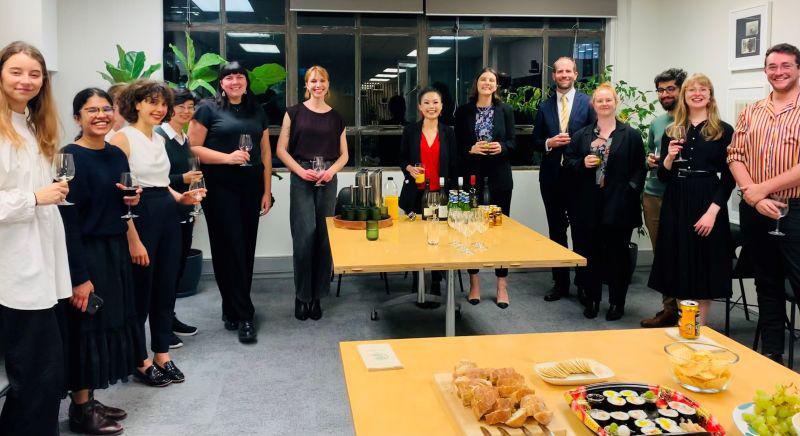
The NZBA Junior Bar Committee recently organised collegial functions in Christchurch and Wellington for Junior Bar members. We would like to thank both the Committee and the sets who kindly invited us to their Chambers.
Auckland Bar Farewells Judge Corkill
The NZBA organised and presented an event at Bankside Chambers to give Auckland employment practitioners the opportunity to celebrate with His Honour Judge Bruce Corkill, who will retire in February. Catherine Stewart spoke on behalf of the profession and His Honour replied.
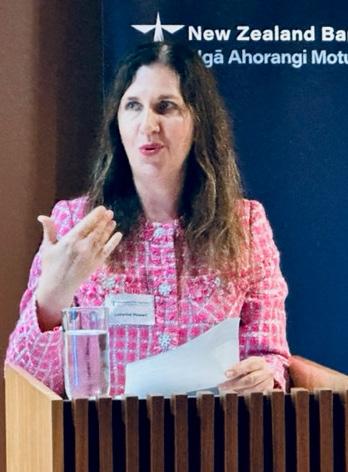

36 DECEMBER 2023
Walker Street Chambers in Christchurch
Kānuka Chambers in Wellington
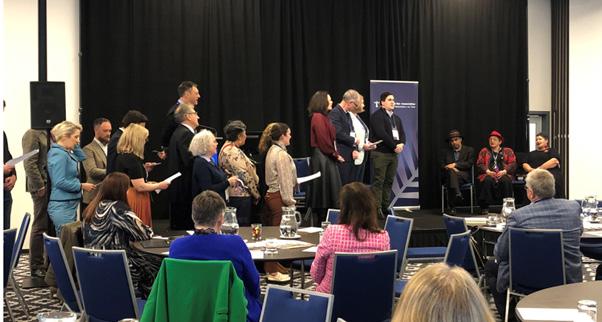
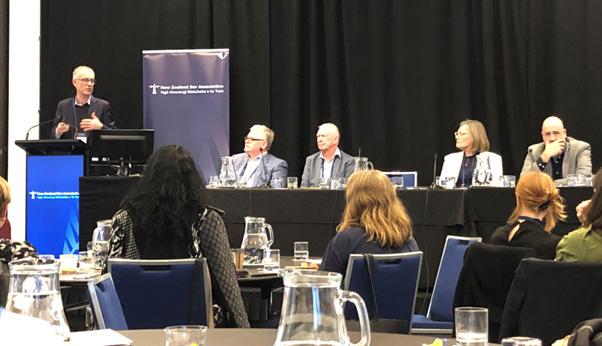
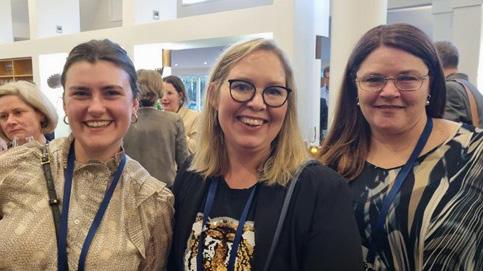
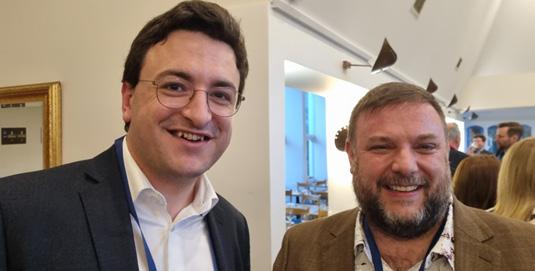

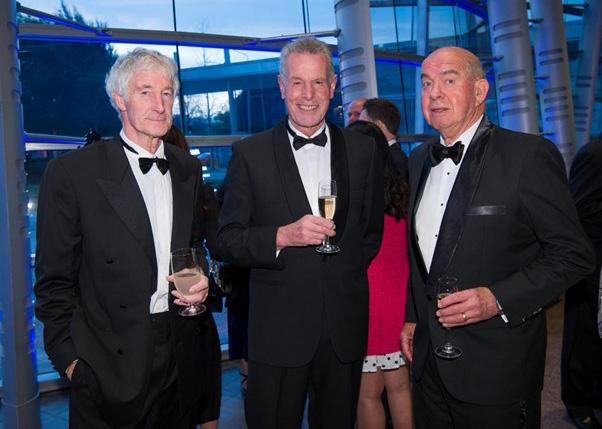

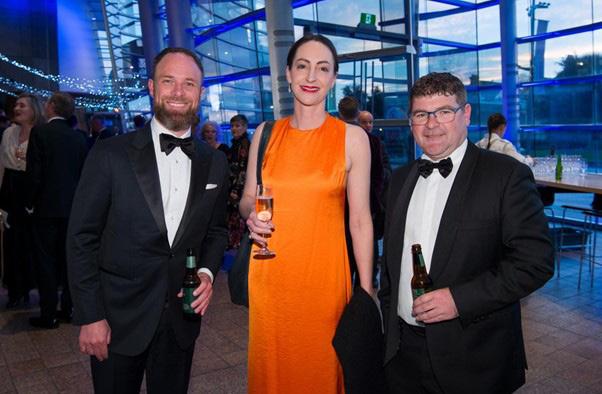
DECEMBER 2023 37
Conference
Phillip Cornegé, Esther Watt, Mark Robertson
Richard Fowler KC, Terry Stapleton KC, Colin Carruthers KC
Augustine Choi and Josh Suyker
Junior barristers at the casual drinks on Friday night sponsored by Curated Risk
Tiho Mijatov and Ben Hamlin
Savanna Gaskill, Taryn Gudmanz and Bronwyn Jones
Left to right Frazer Barton, Peter Dunning KC (Chair), John Billington KC, Maria Dew KC and Baden Vertongen
Mihi whakatau - our thanks to Te Taumata o Ngāi Tūāhuriri. Te Taumata hold the Mauri for the Kawa & Tīkanga o Ngāi Tūāhuriri, as well as conducting cultural ceremonies in our Takiwā
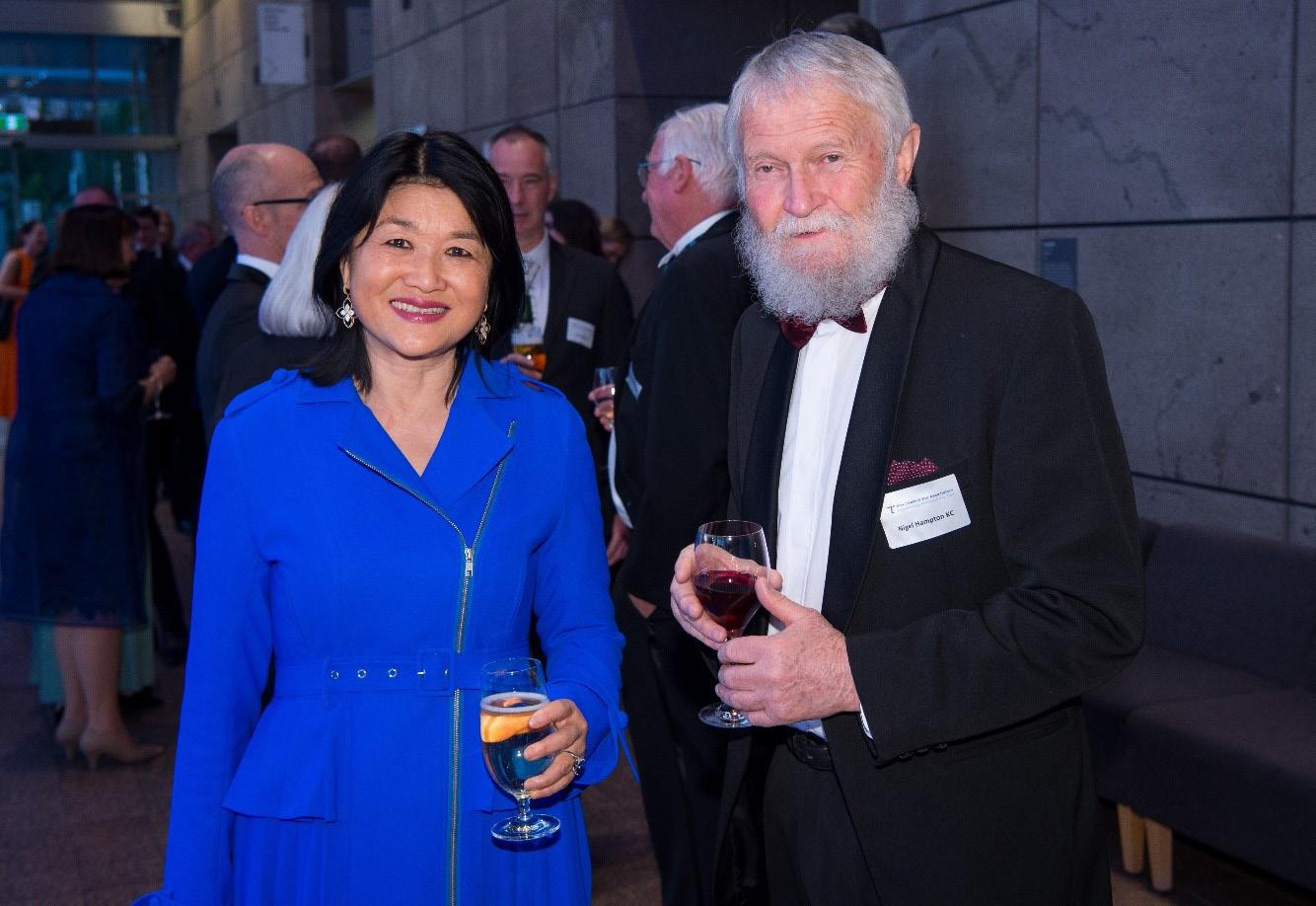
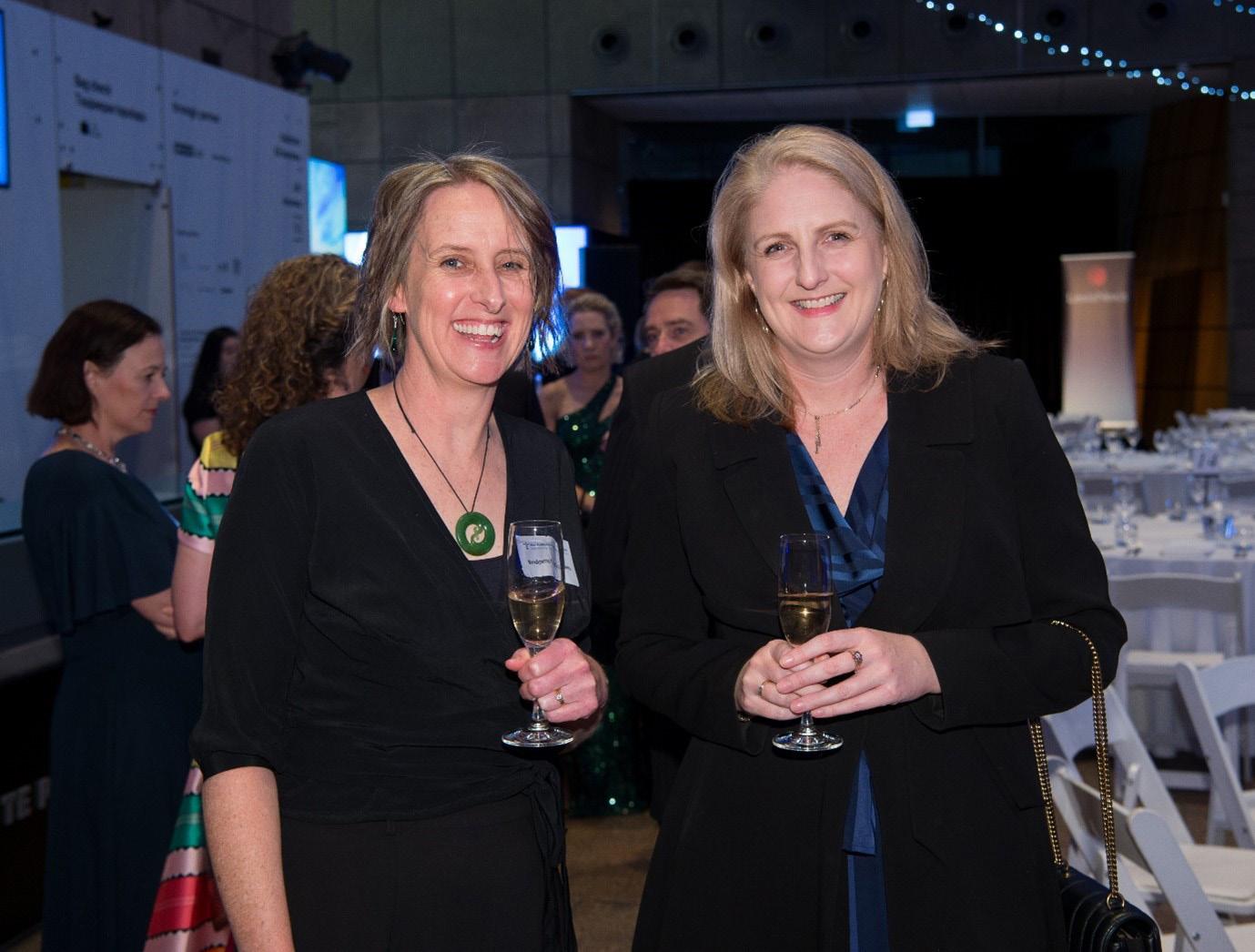
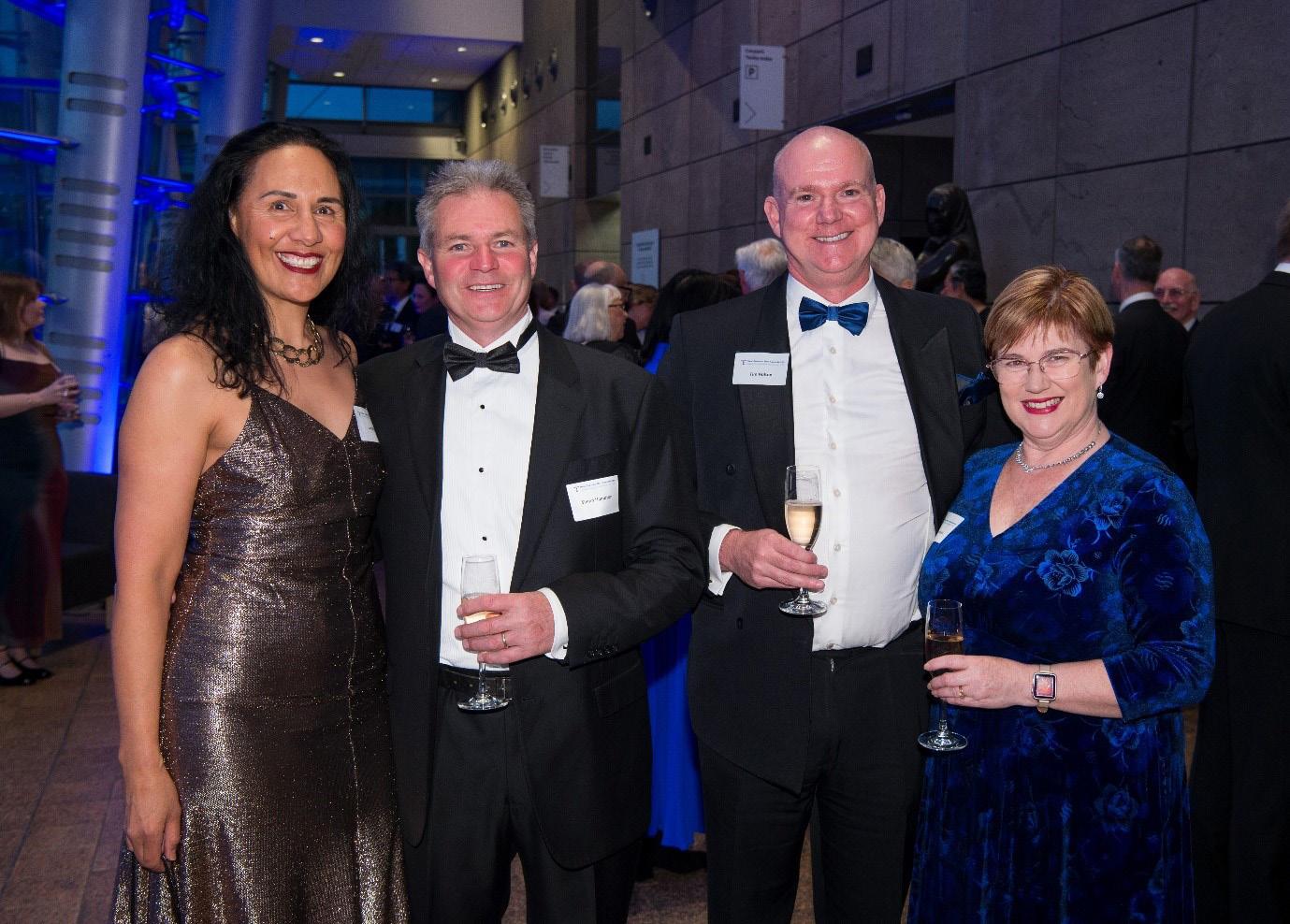
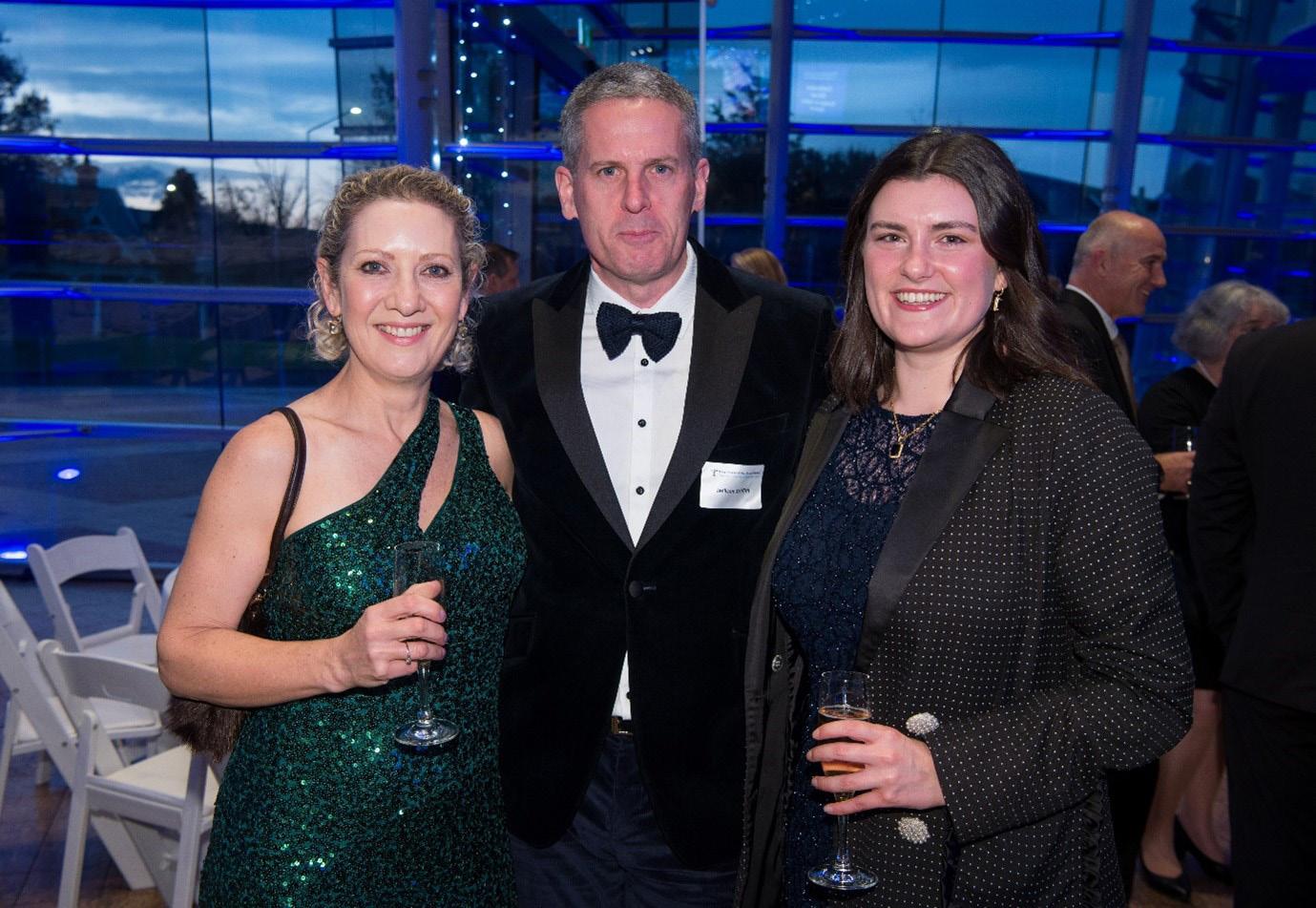
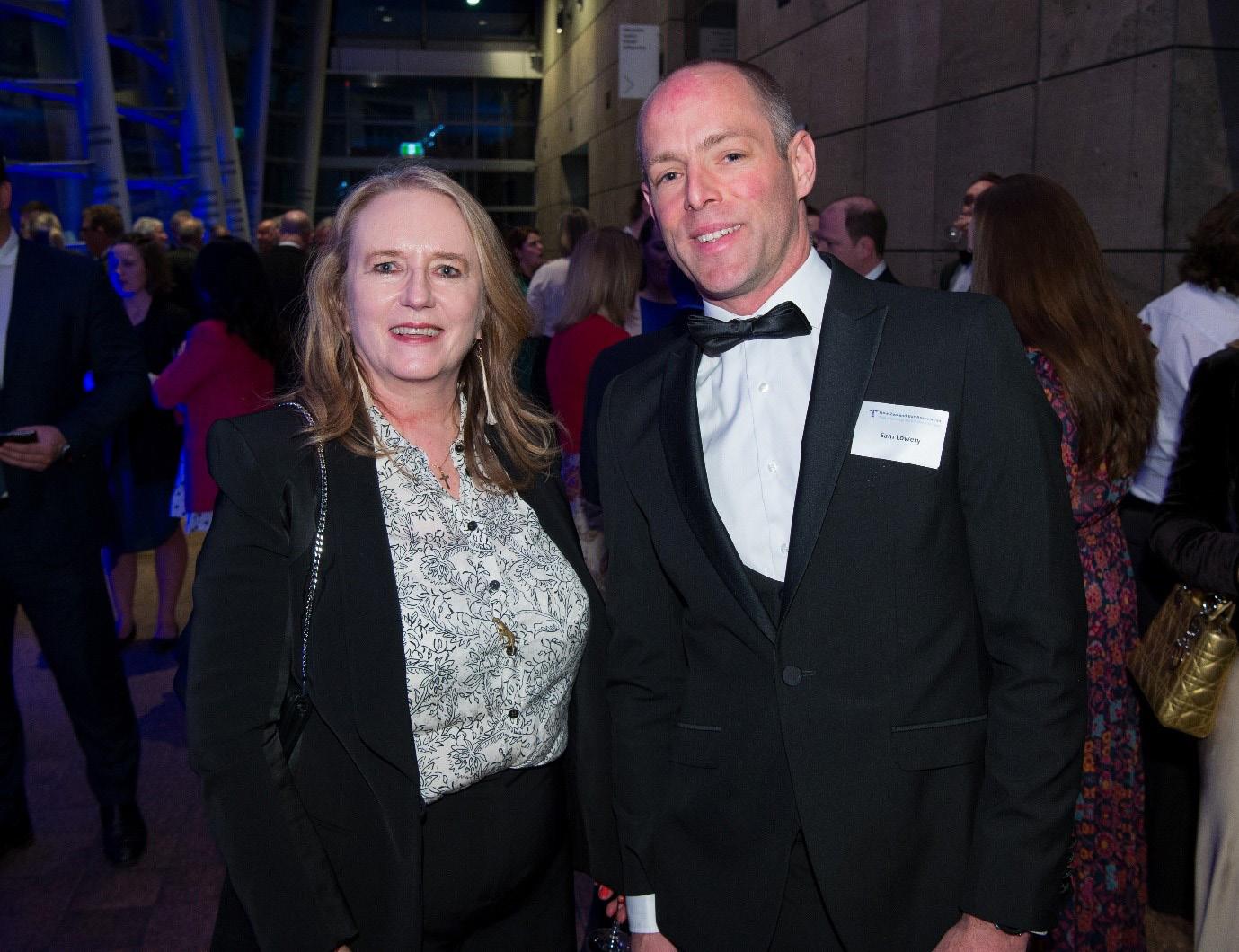
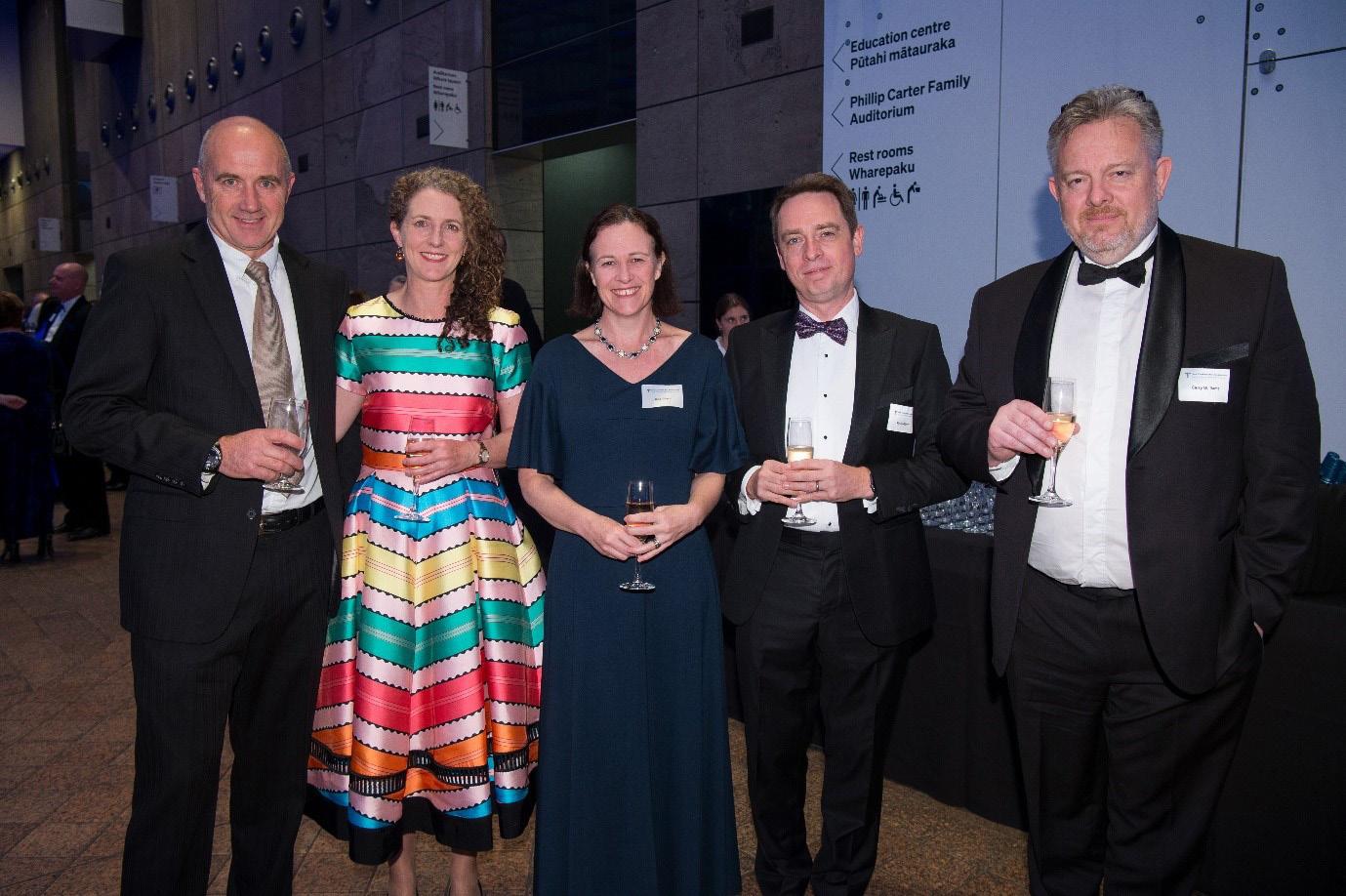

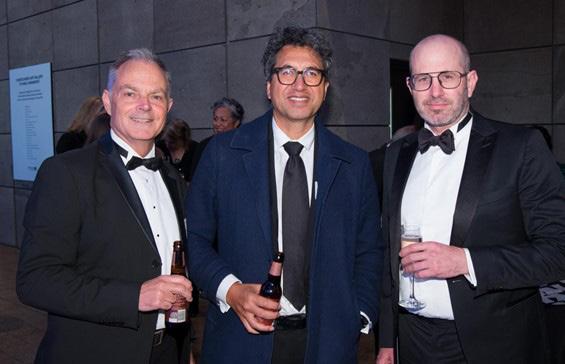
38 DECEMBER 2023
James Rapley KC, Quentin Duff, Josh McBride
Conference
Michael Whyte, Genevieve Haszard, Jane Glover, Kevin Glover, Garry Williams
Lady Deborah Chambers KC and Scott McColgan Rosemary Thomson and Sam Lowery
Anne Toohey, Jackson Griffith, Savanna Gaskell
Dr Bridgette Toy-Cronin and Catherine Green
Lana Paul, Simon Hampton, Tim Holton and Robyn Mackie
Mai Chen and Nigel Hampton KC

World Bar Conference 2024


Independent Referral BarsResponding to Global Challenges
15 - 17 MAY 2024 | BELFAST & DUBLIN
Royal Courts of Justice | Titanic Hotel | Dublin Castle | Christchurch Cathedral
Every two years, the International Council of Barristers and Advocates & Barristers organises an international legal conference in different cities worldwide. The World Bar Conference is the only event which brings together members of the independent referral Bar from around the world for three days of debate and discussion on issues and topics of relevance.
TOPICS INCLUDE:
Navigating the Crossroads: Cancel Culture, Free Speech, and the Right to Offend Law in the Era of Climate Crisis: Unearthing the Legal Challenges Can the Rule of Law Survive in a Time of Conflict?
Rule of Law Under Fire: Existing in an Age of Conflict
Humanity on the Move: Legal Frontiers in Migration and Human Rights
AI Unleashed: Tomorrow's Legal Landscape and the New Normal?
An Independent Bar and an Independent Judiciary: Perspectives from Chief Justices in ICAB Jurisdictions
REGISTRATION NOW OPEN
View full agenda, social programme and book your place at: www.worldbar2024.com
Jointly hosted by The Bar of Northern Ireland and The Bar of
Ireland
MARIA DEW KC – President
Ph +64 9 307 5251 maria@mariadew.co.nz
PAUL DAVID KC – President Elect
Ph: +64 9 379 5589 paul@pauldavid.co.nz
KELLIE ARTHUR
Ph +64 9 972 2052 kelliearthur@fortyeightshortland.co.nz
JOHN BILLINGTON KC
Ph +64 9 307 9828 jb@billington.co.nz
VICTORIA CASEY KC
Ph: +64 4 212 4679 victoria.casey@cliftonchambers.co.nz
PHILLIP CORNEGÉ
Ph +64 7 282 0572 Phillip@rivrebank.co.nz
SAVANNA GASKELL
Ph: +64 3 477 3488 savanna@barristerschambers.co.nz
GENEVIEVE HASZARD
Ph: +64 7 571 2447 genevieve@kennedychambers.co.nz
ISWARI JAYANANDAN
Ph: + 64 9 263 0047 iswarij@yahoo.co.nz
SARAH JEREBINE
Ph: +64 9 379 0802 sarah.jerebine@bankside.co.nz
STEPHEN LAYBURN
Ph: +64 9 300 5485 stephen@stephenlayburn.co.nz
RICHARD MCGUIRE
Ph: +64 3 962 4241 richard.mcguire@pds.govt.nz
TIHO MIJATOV
Ph: +64 4 472 9027 tiho.mijatov@stoutstreet.co.nz
RICHARD RAYMOND KC
Ph: +64 3 343 1321 rraymond@canterburychambers.co.nz
RACHAEL REED KC
Ph: +64 9 357 4312 rachael@rachaelreed.co.nz
TIM STEPHENS
Ph: +64 4 917 1086 tim.stephens@stoutstreet.co.nz
2023 – 2024 COUNCIL CONTACT DETAILS
































































































